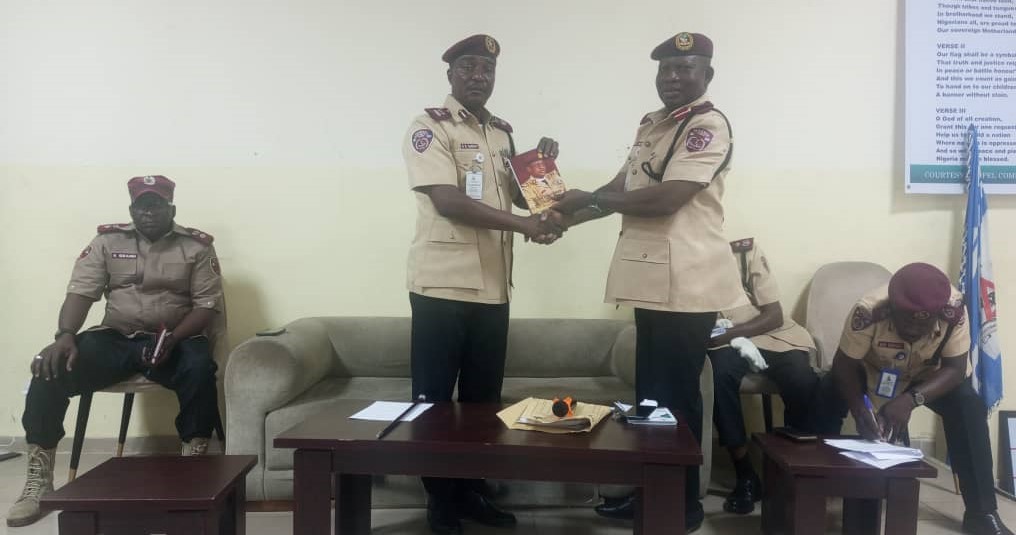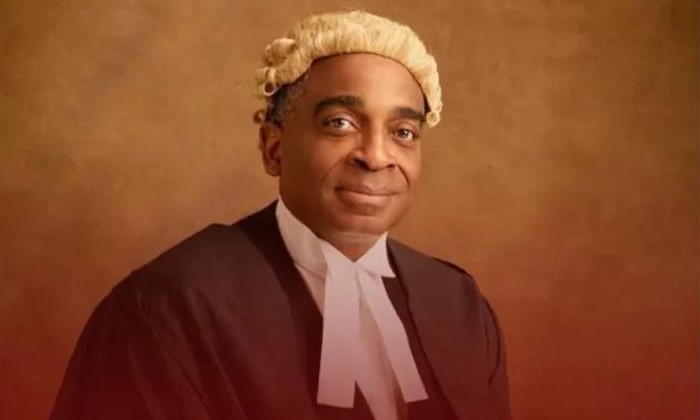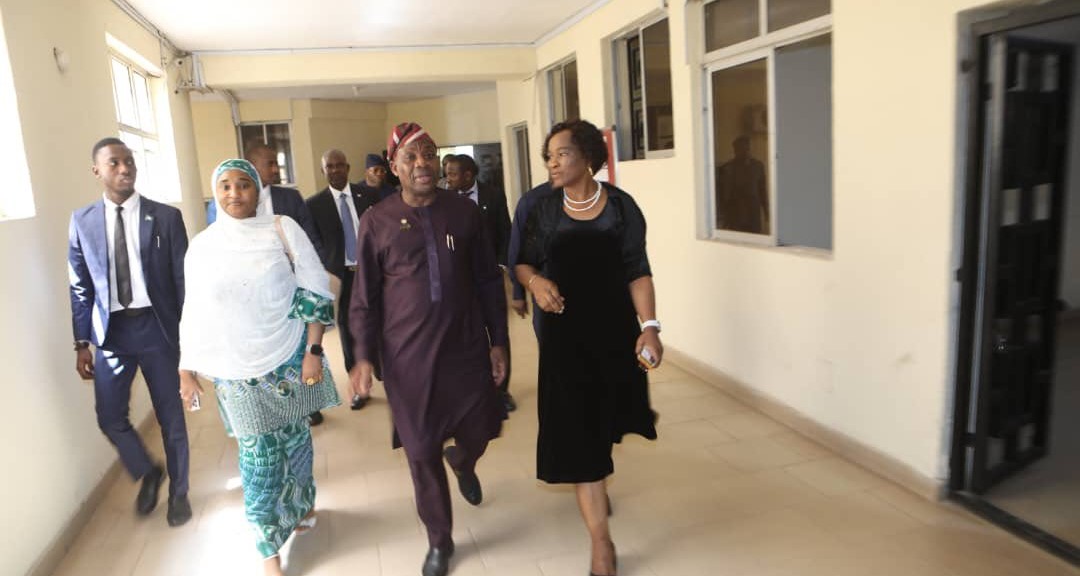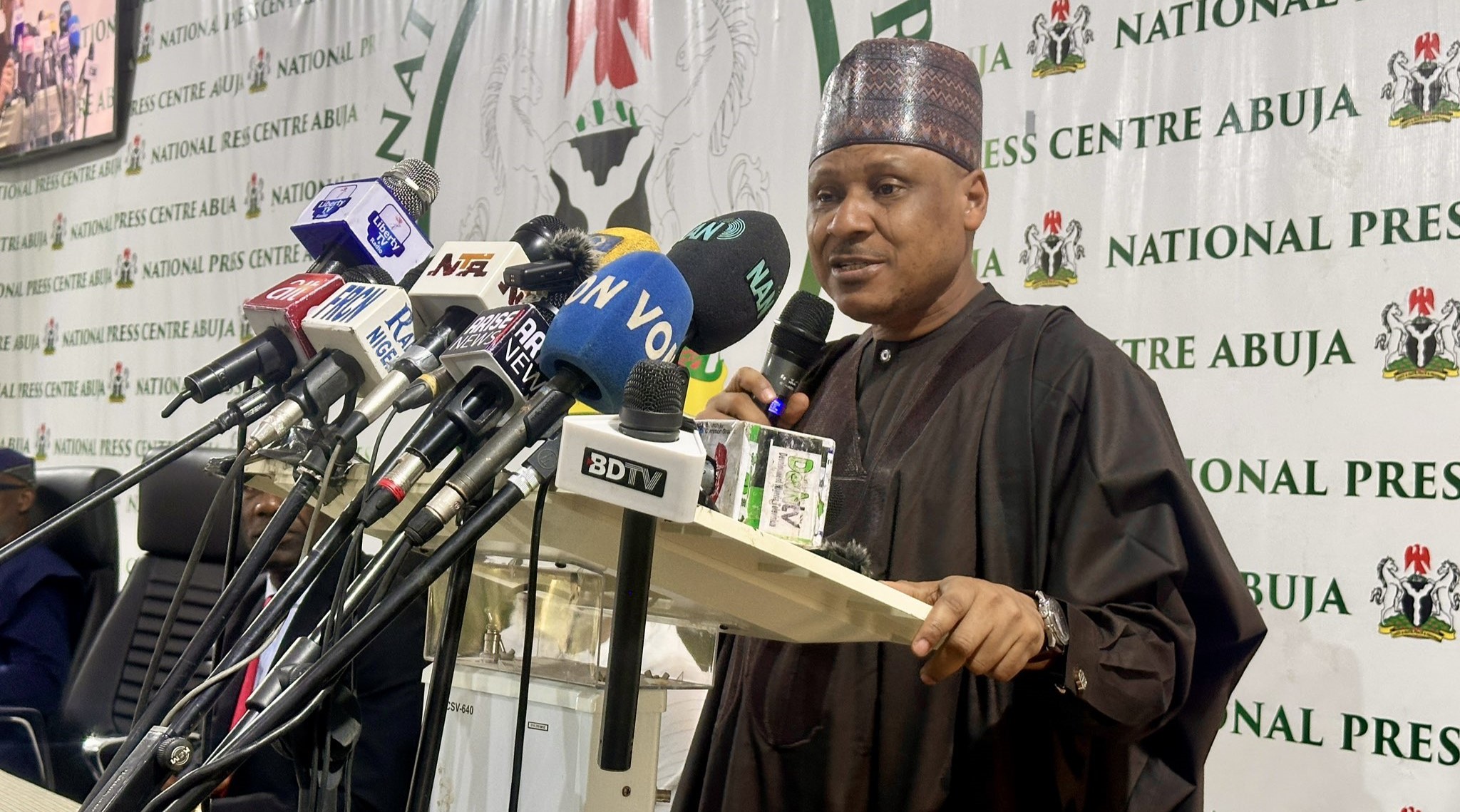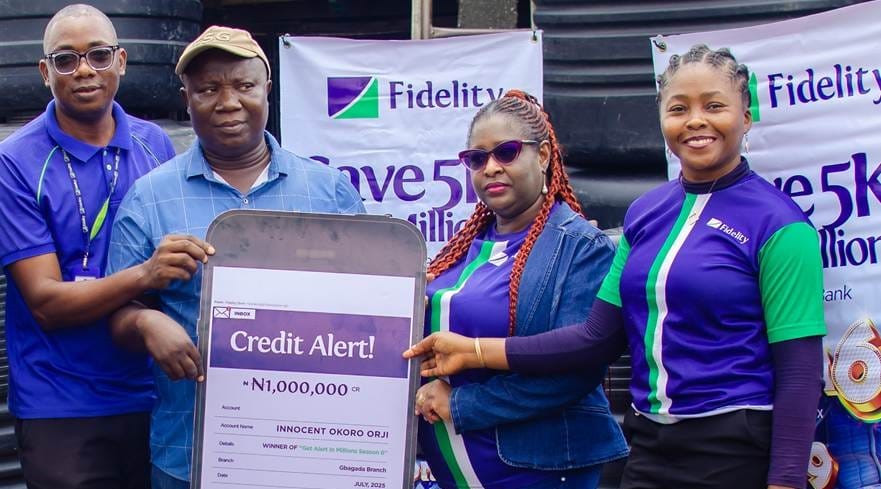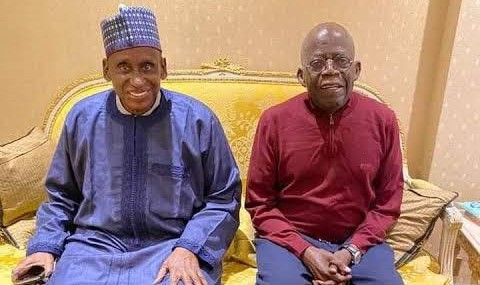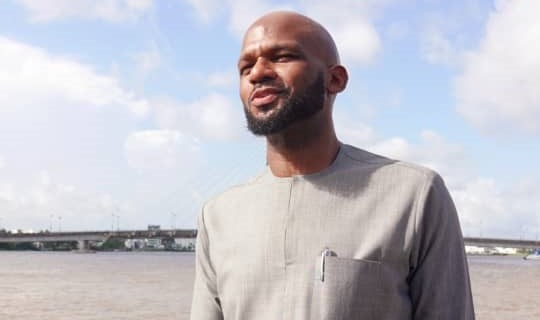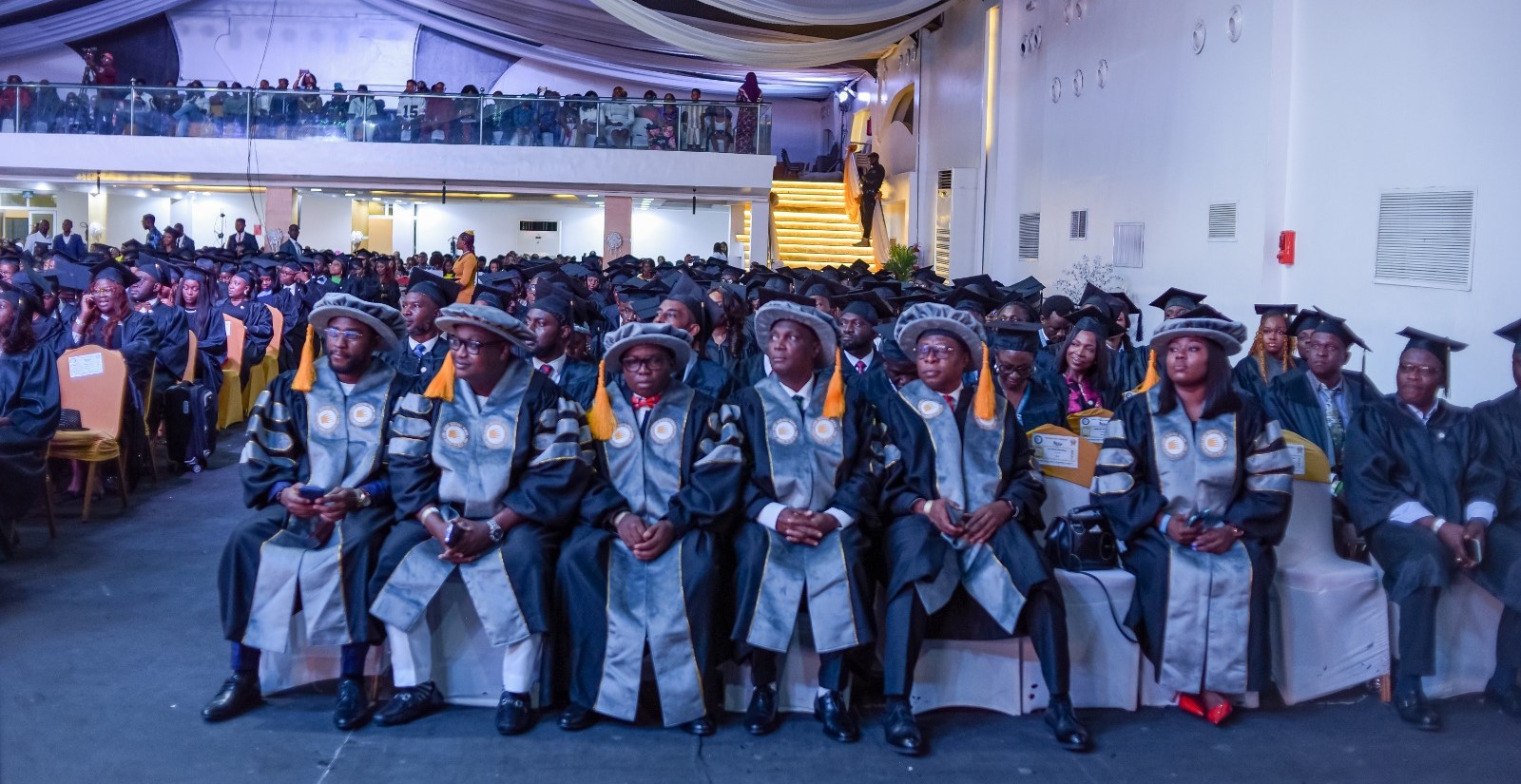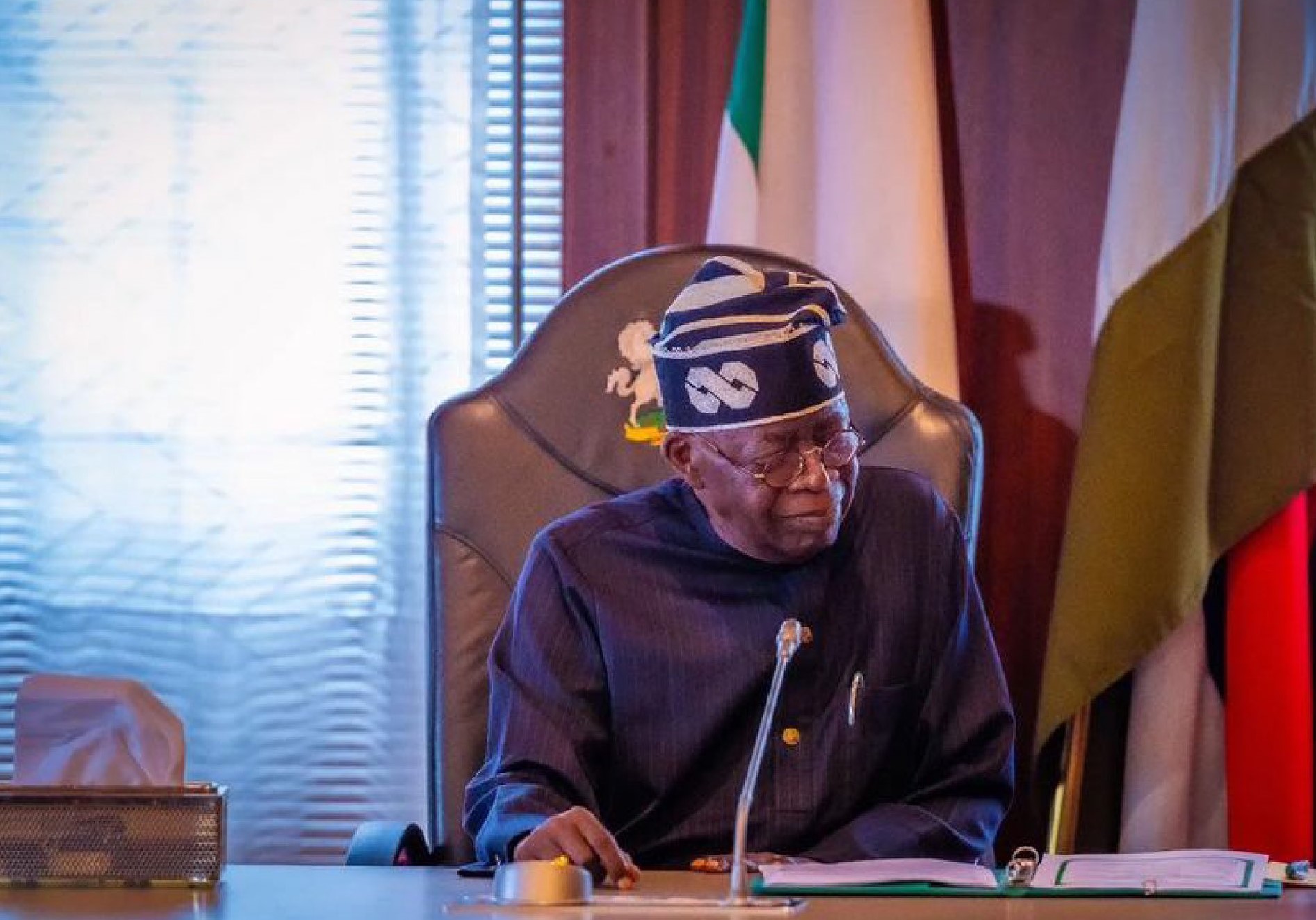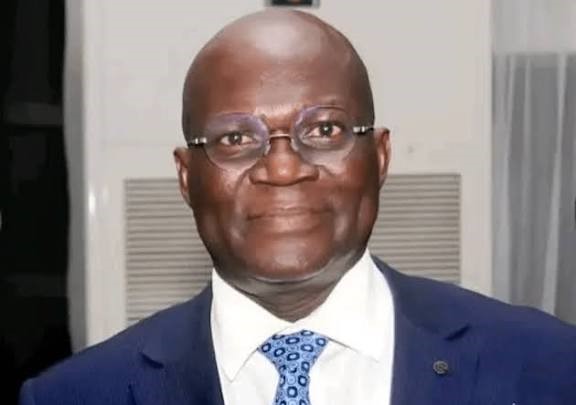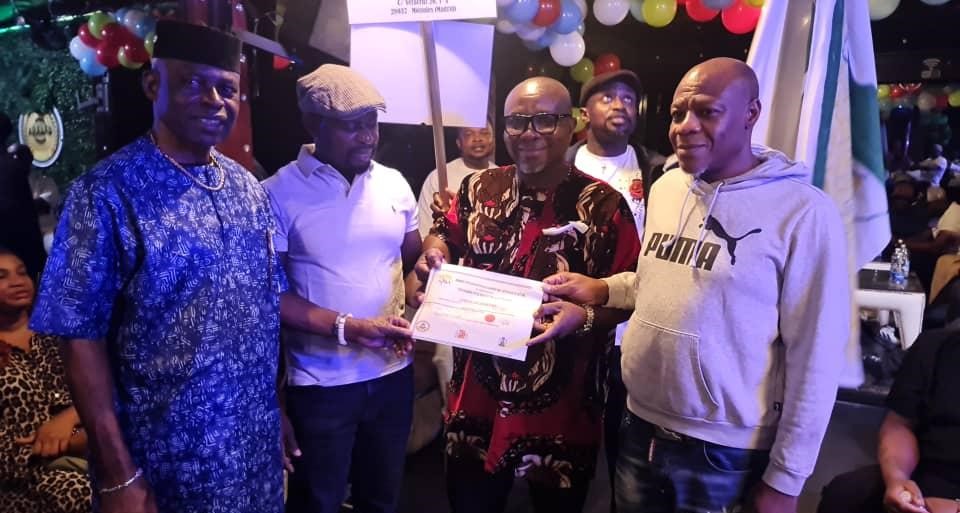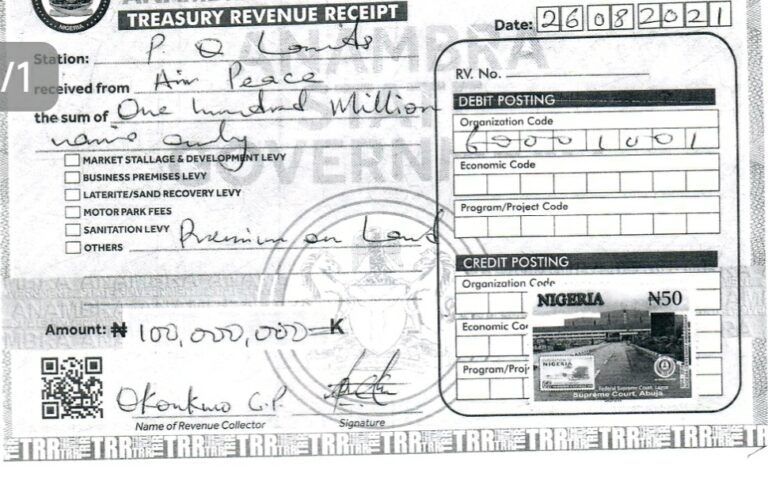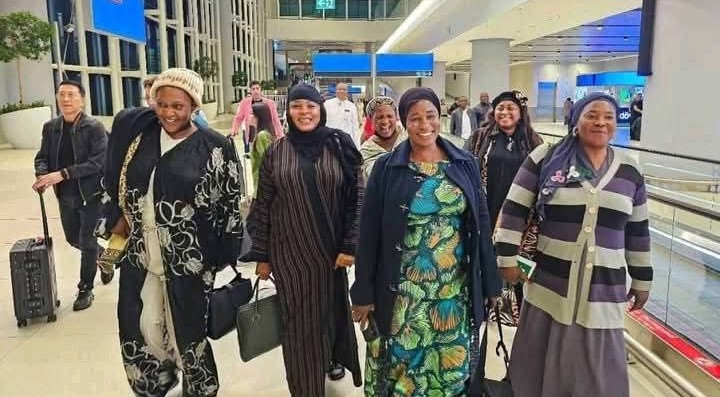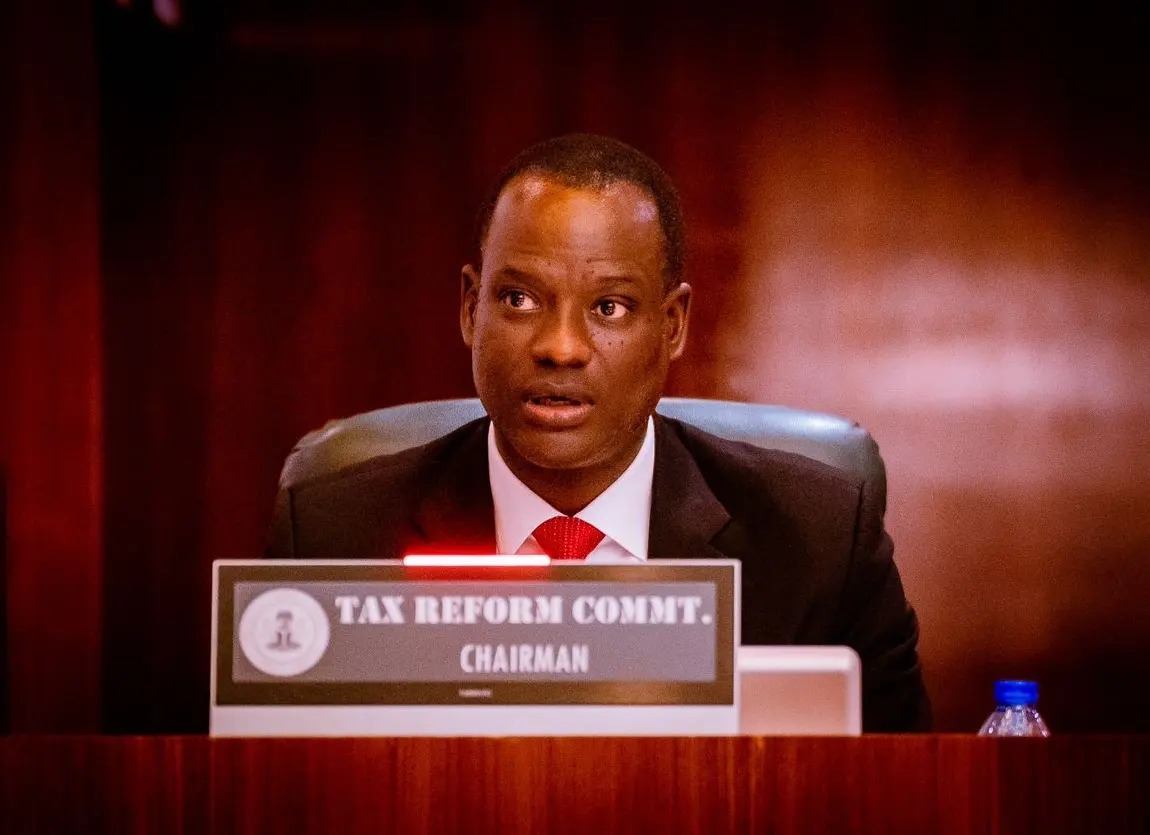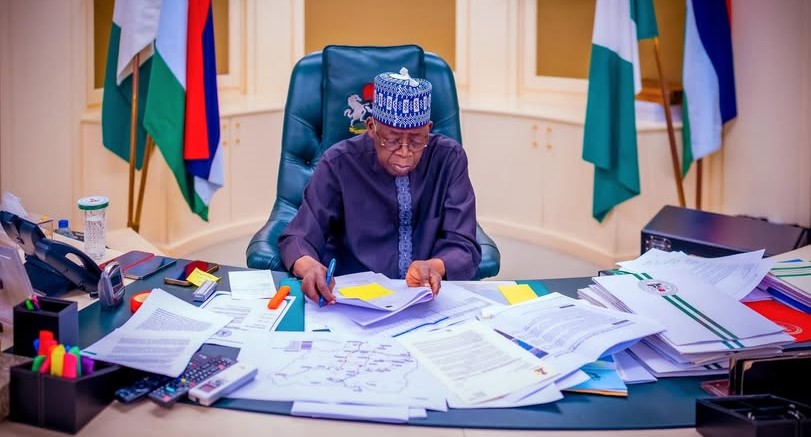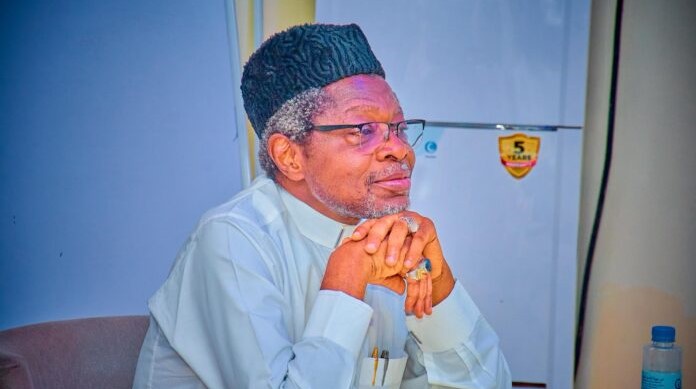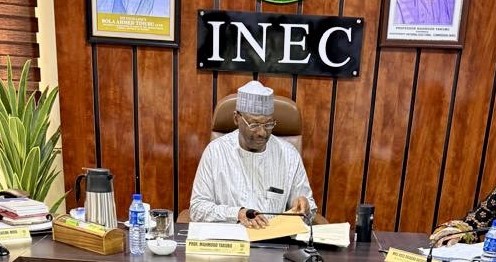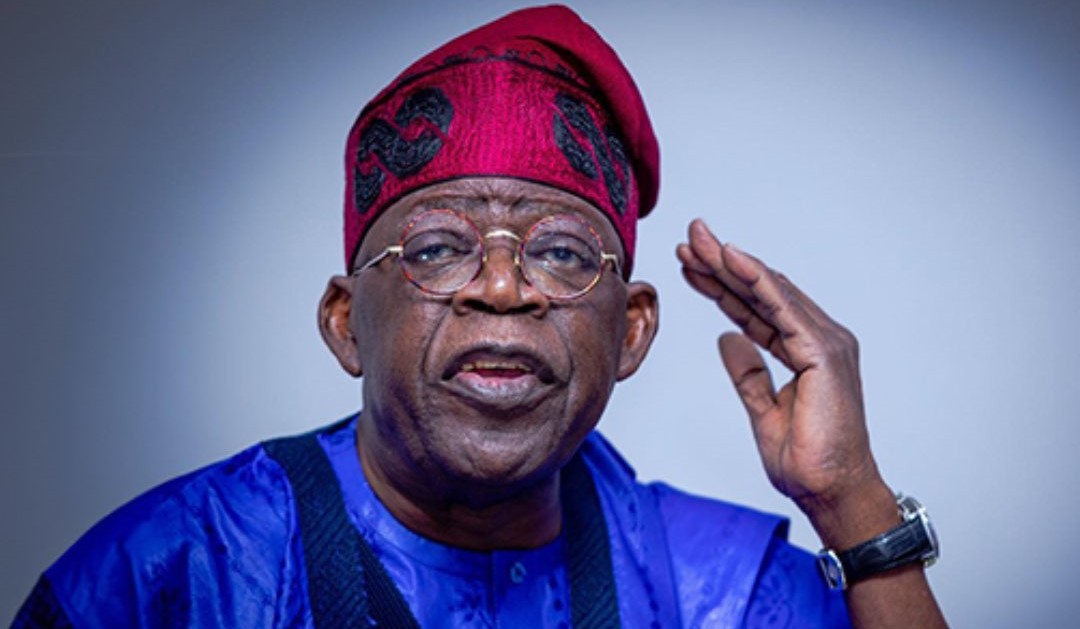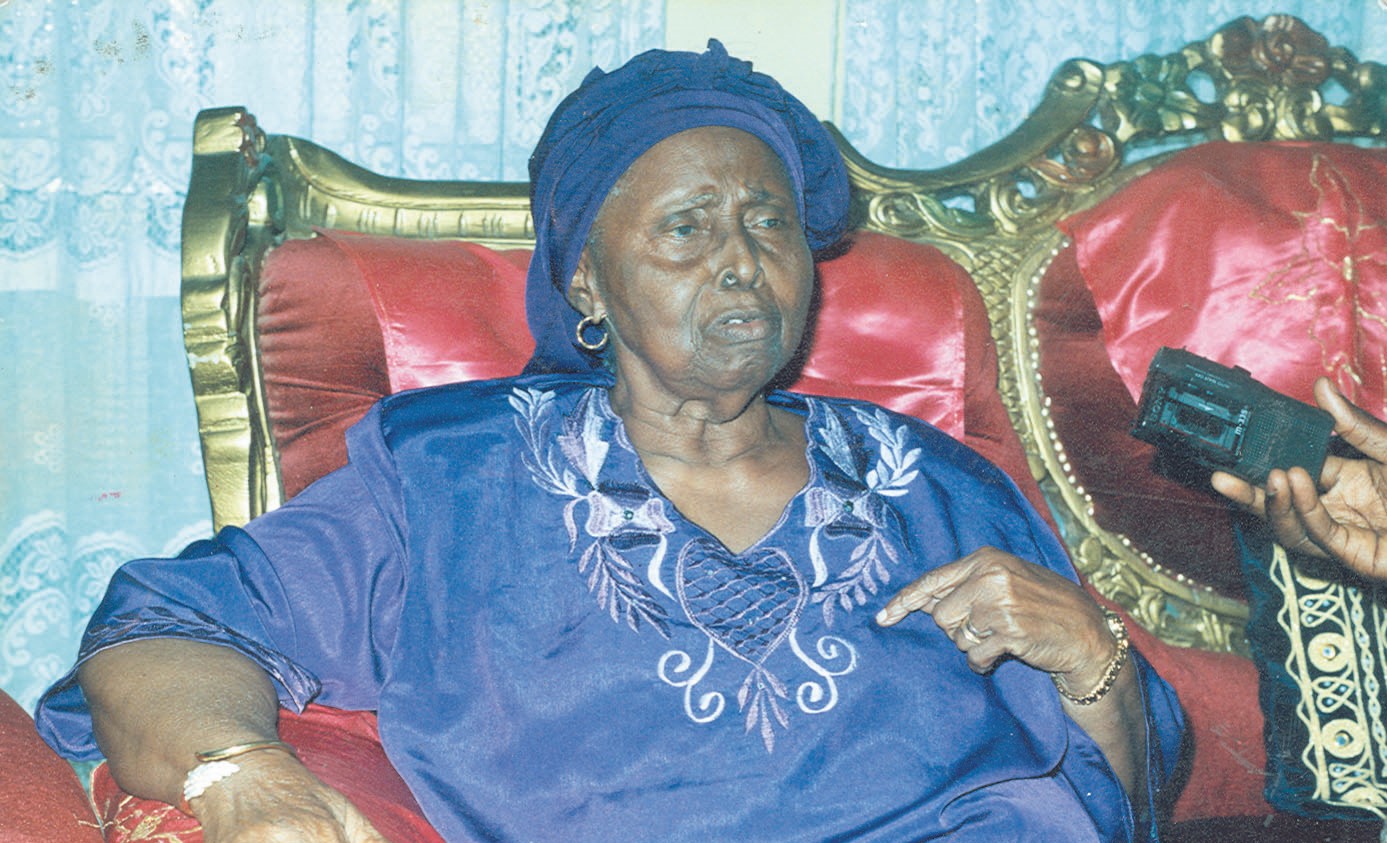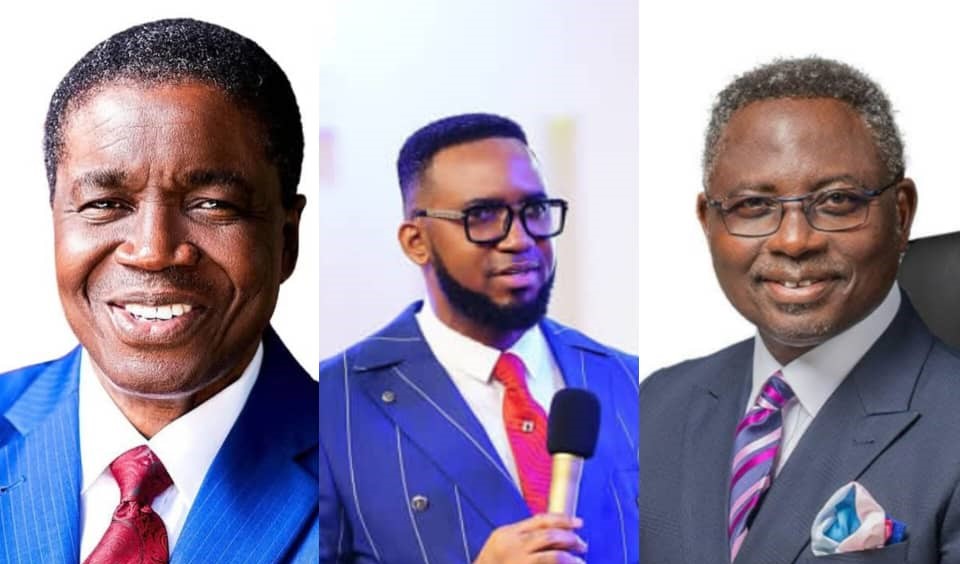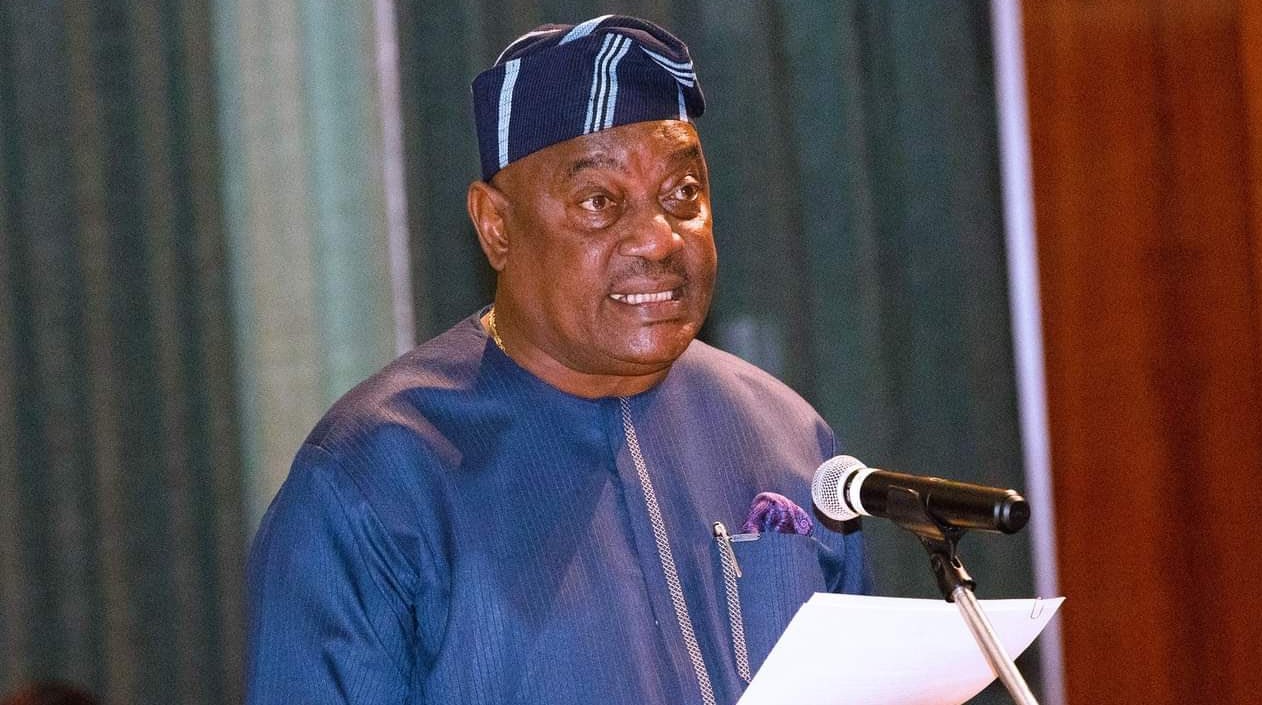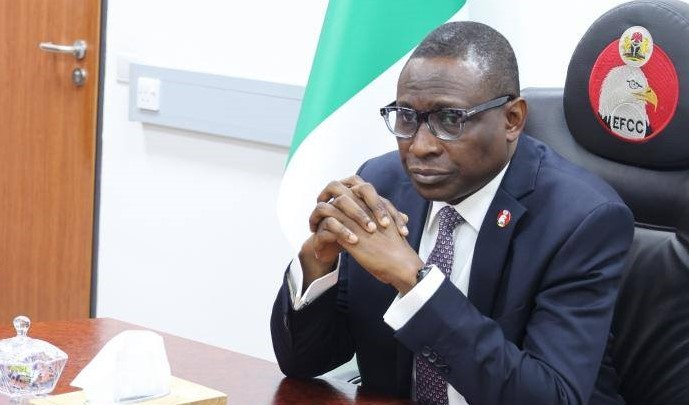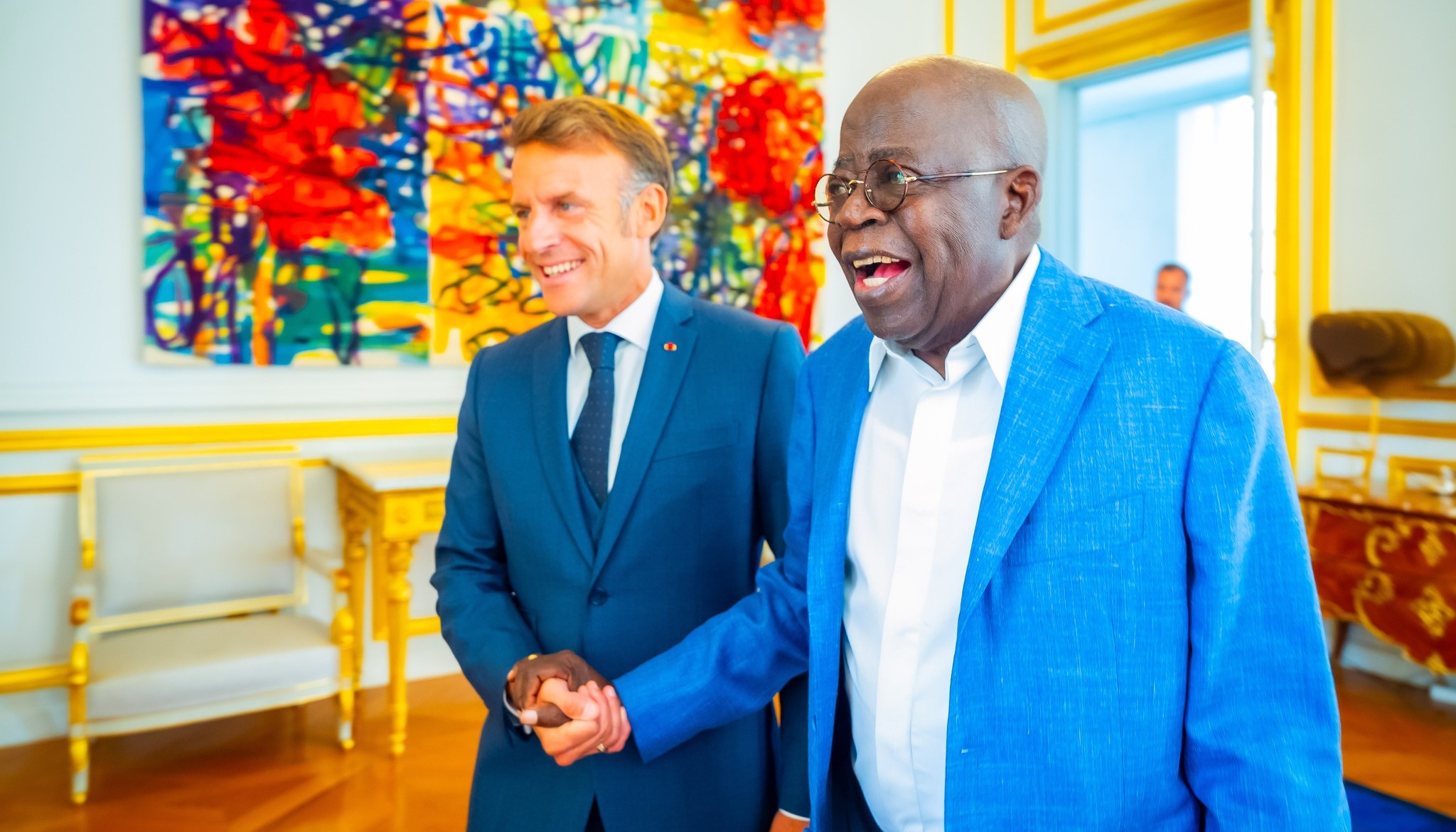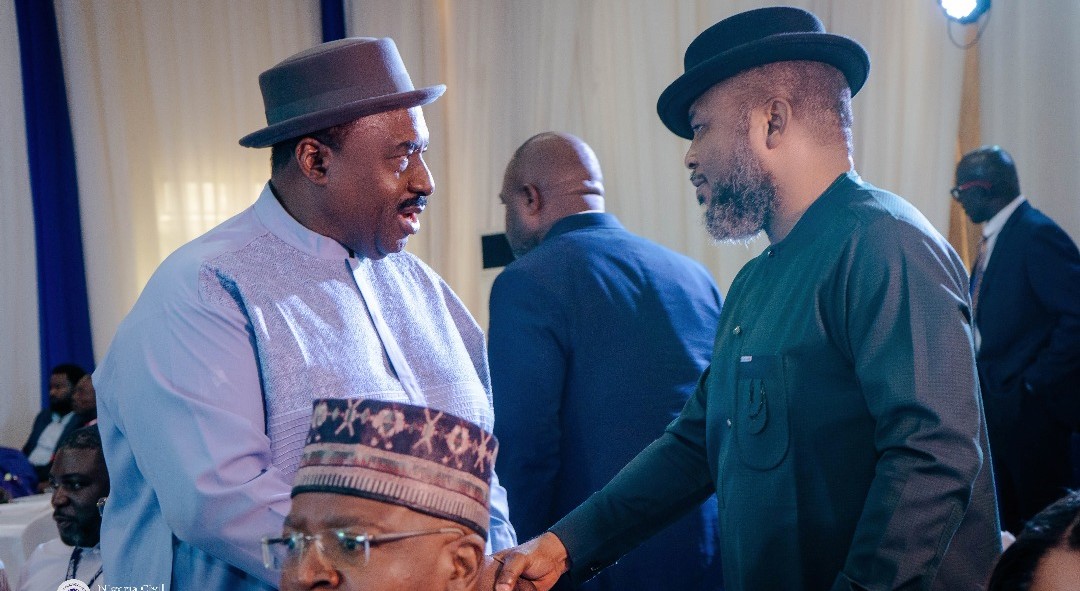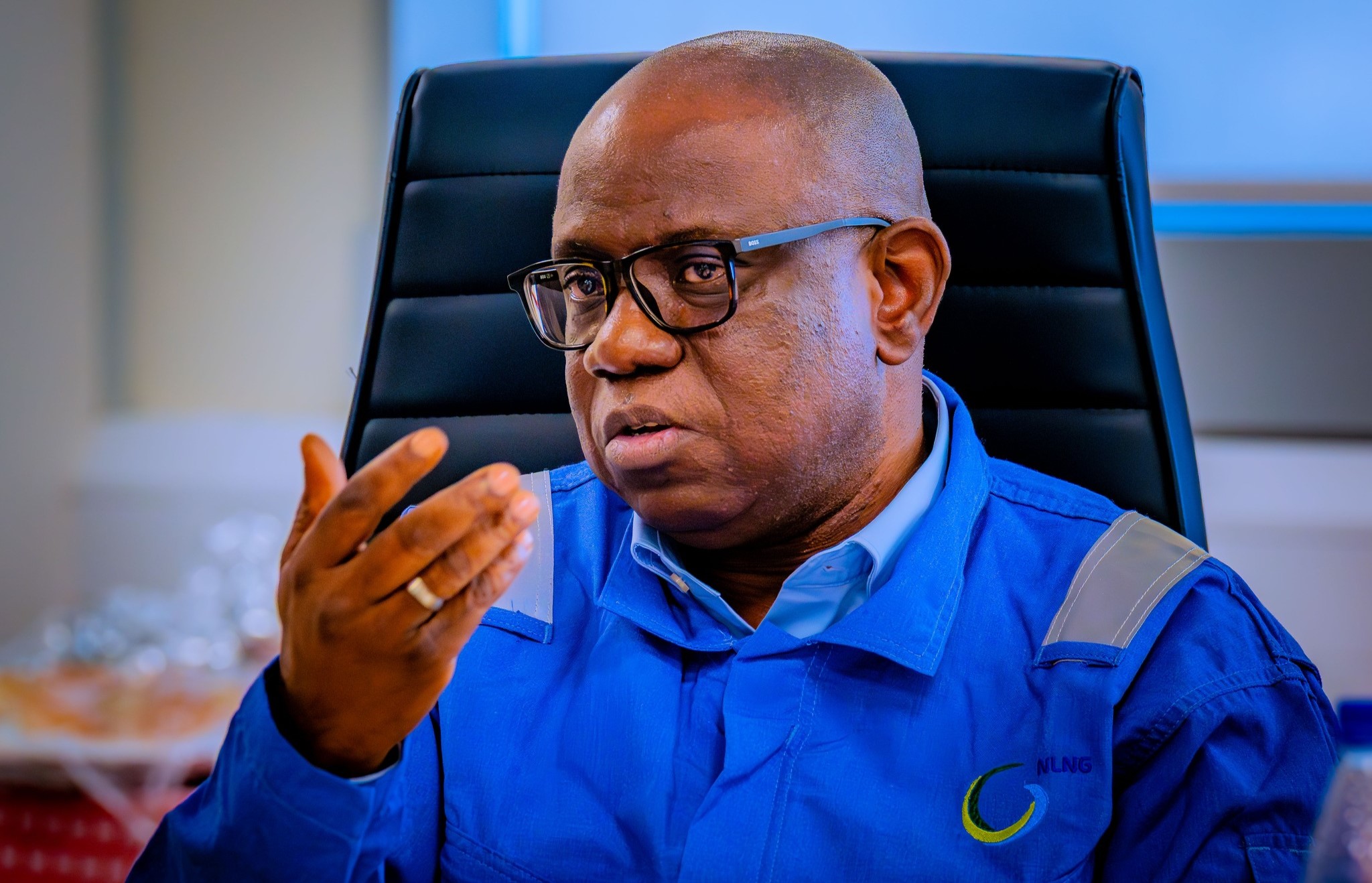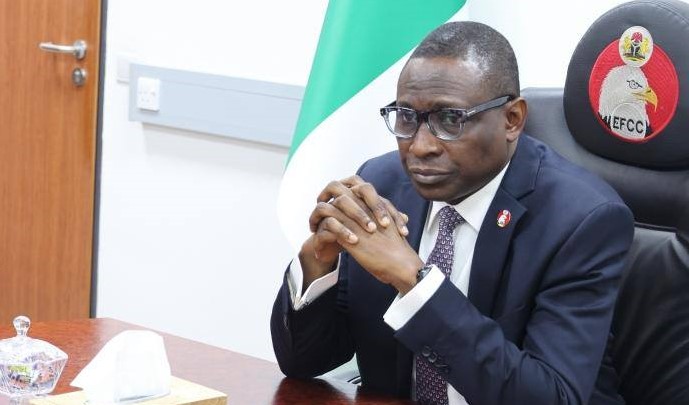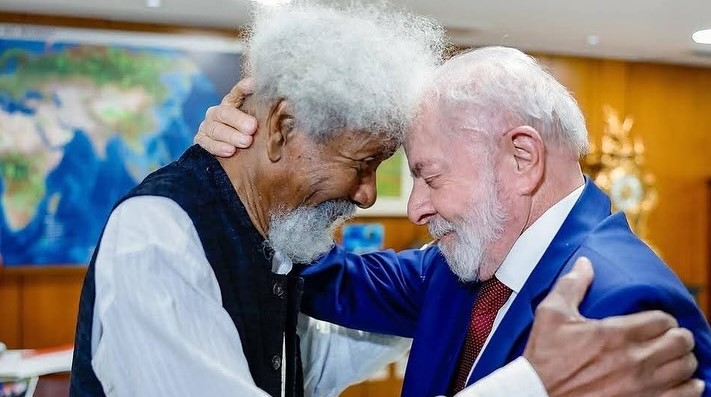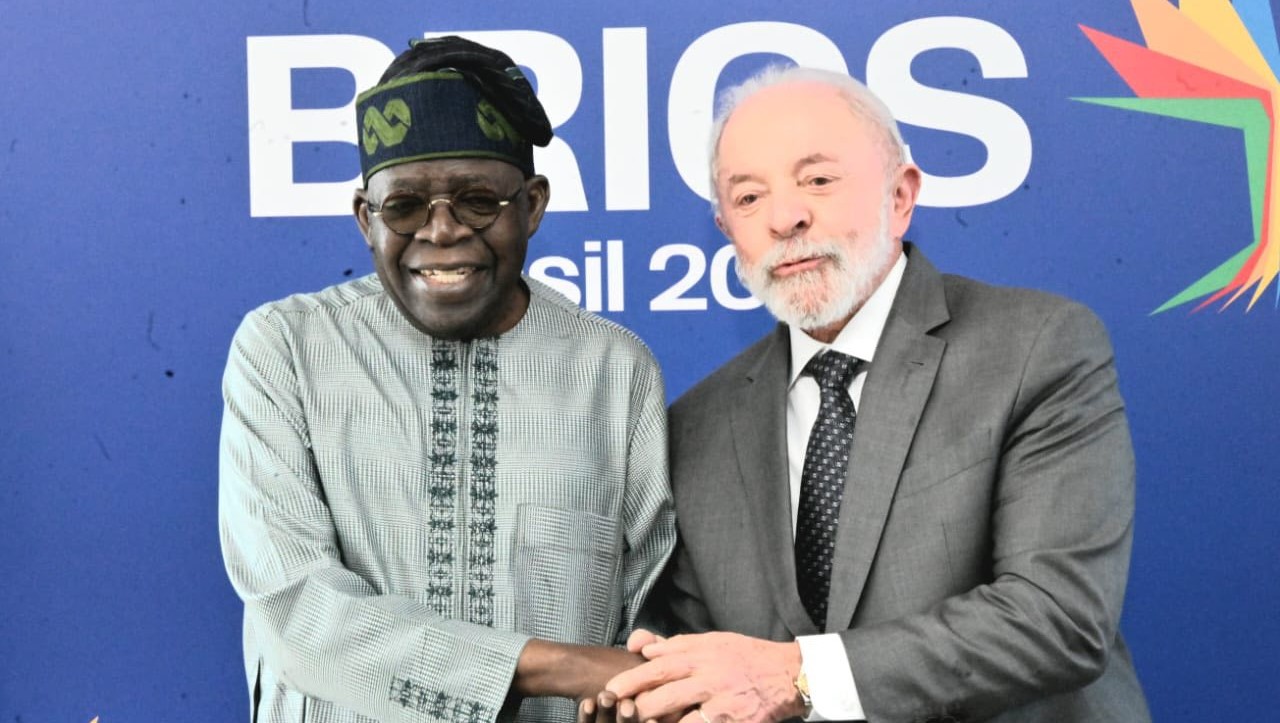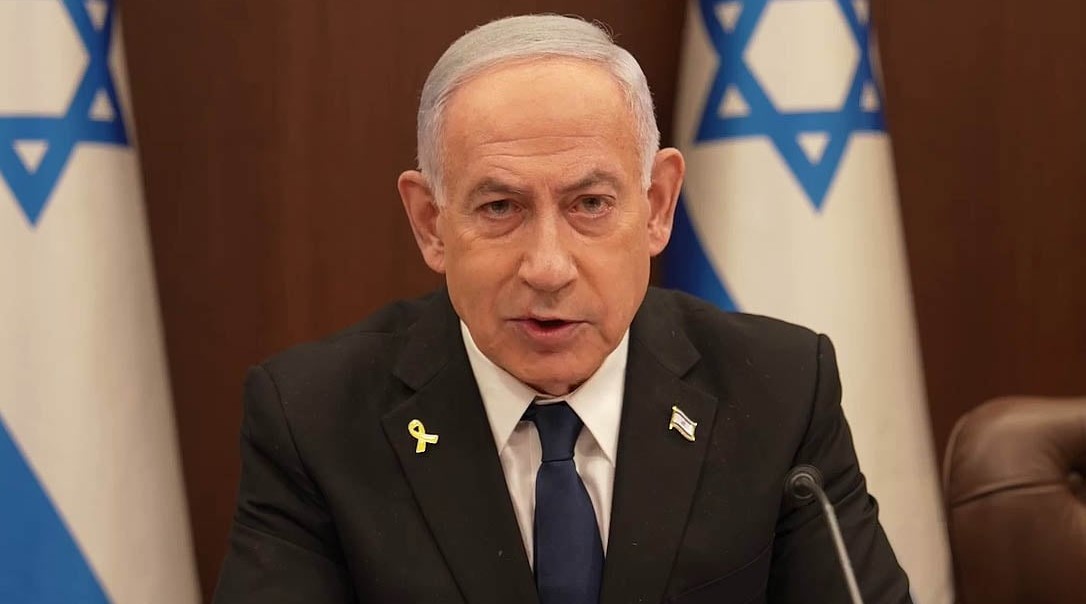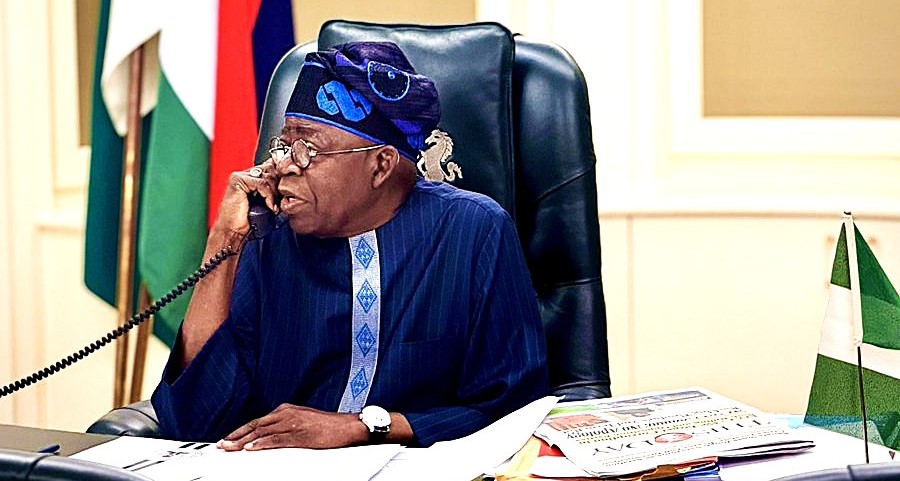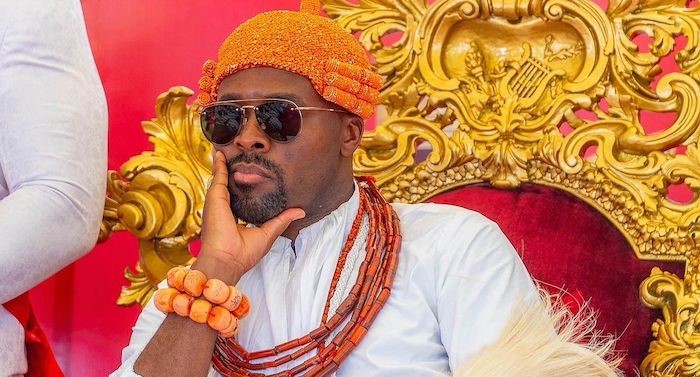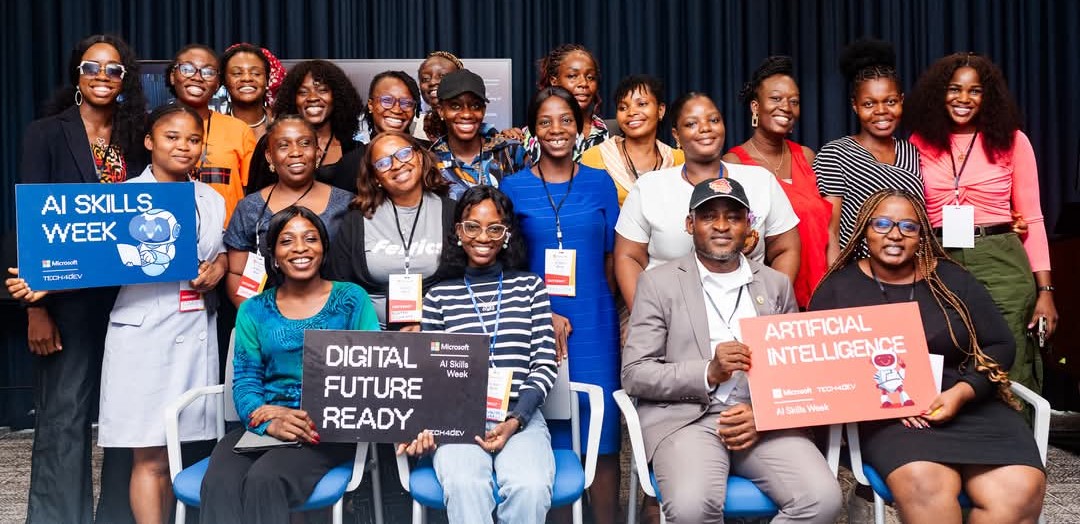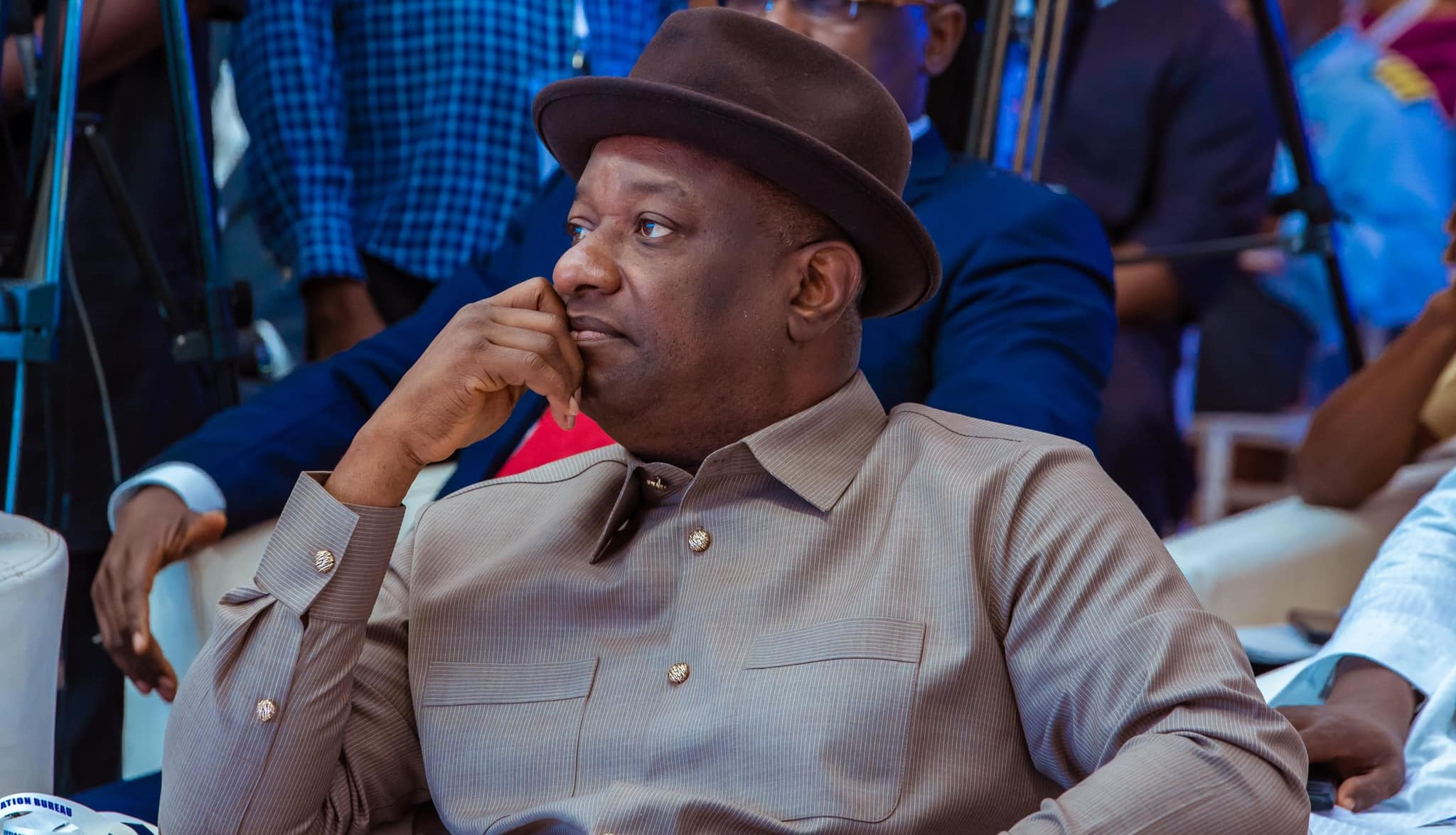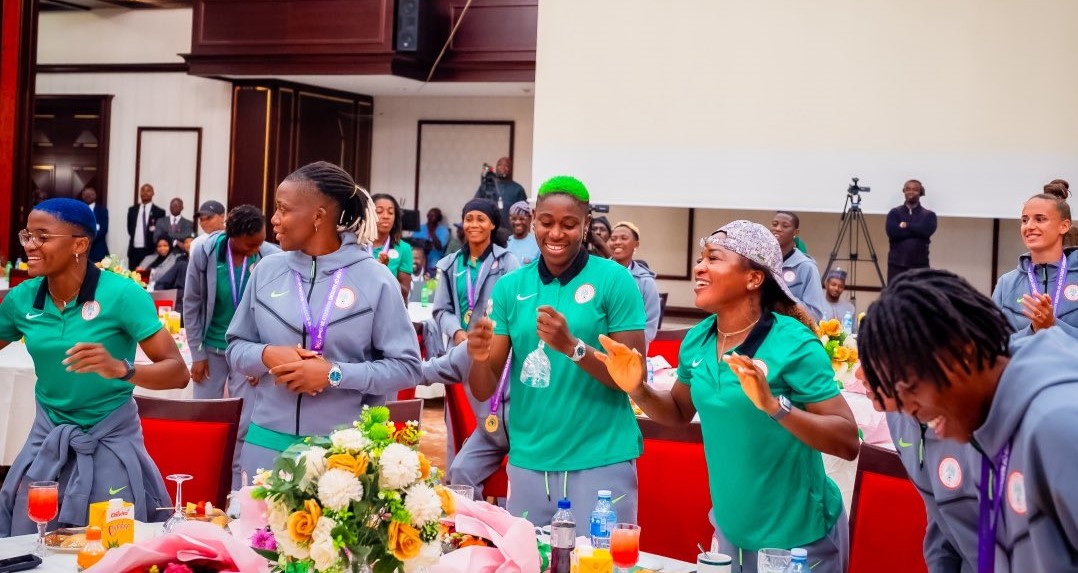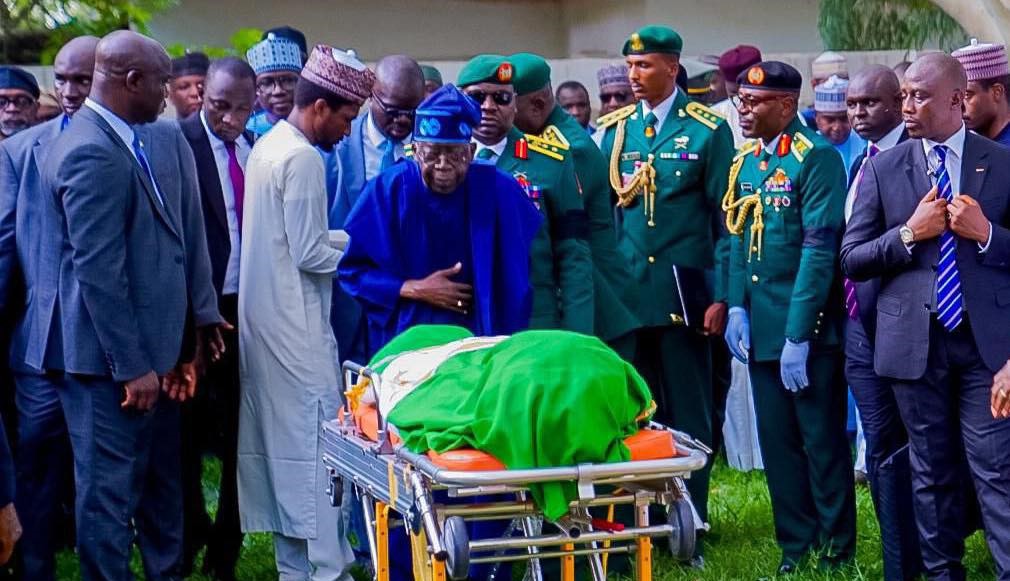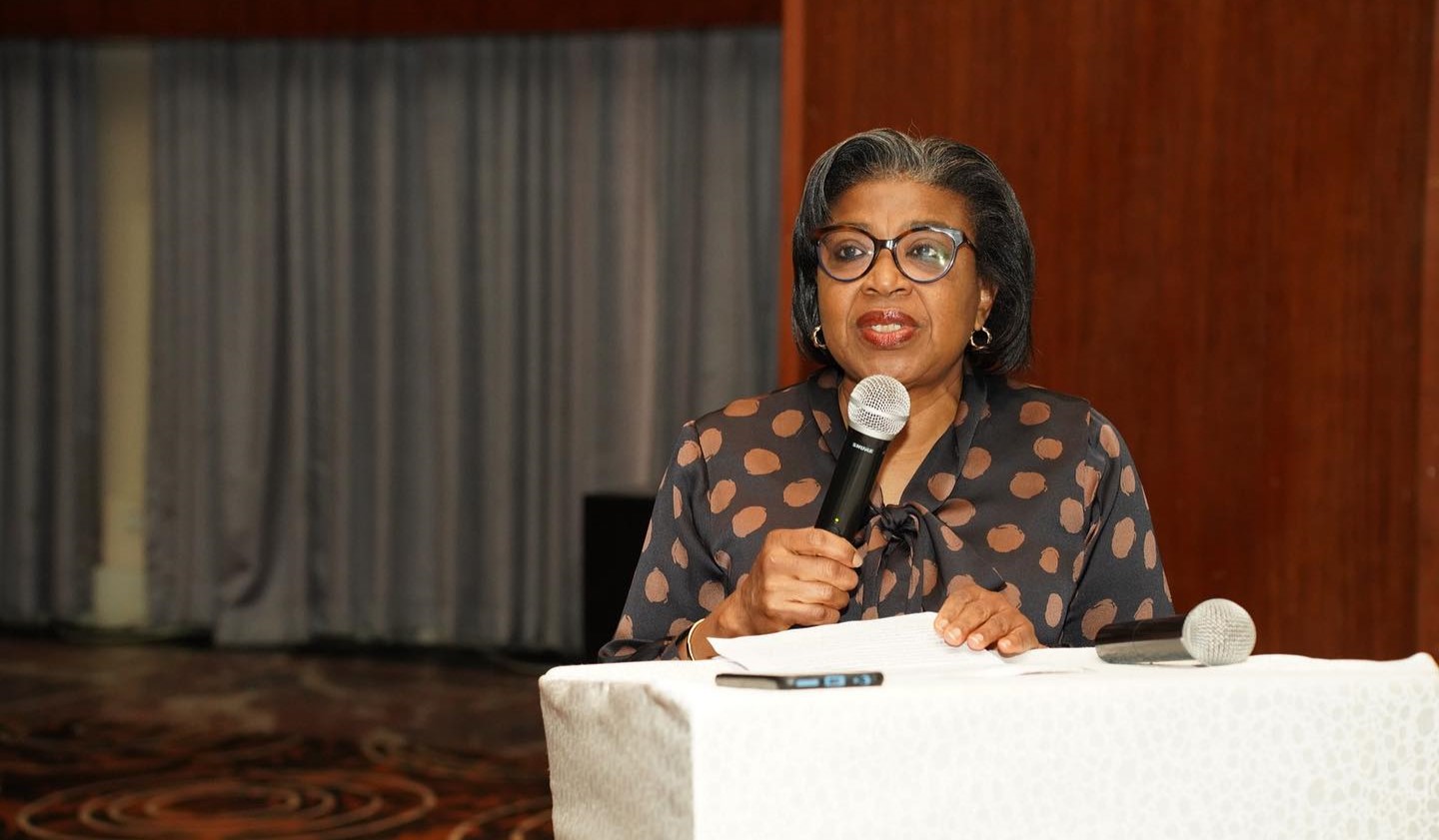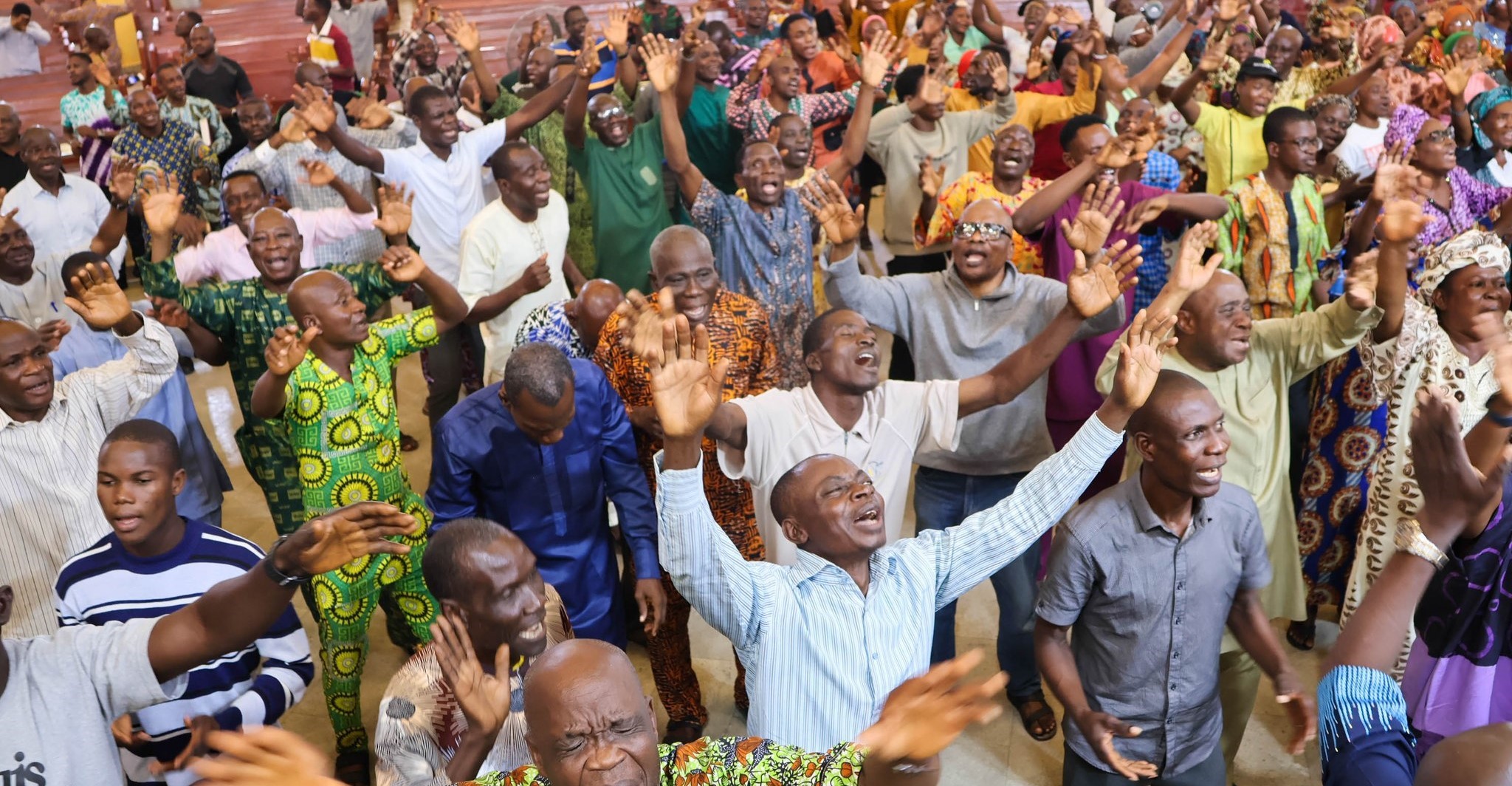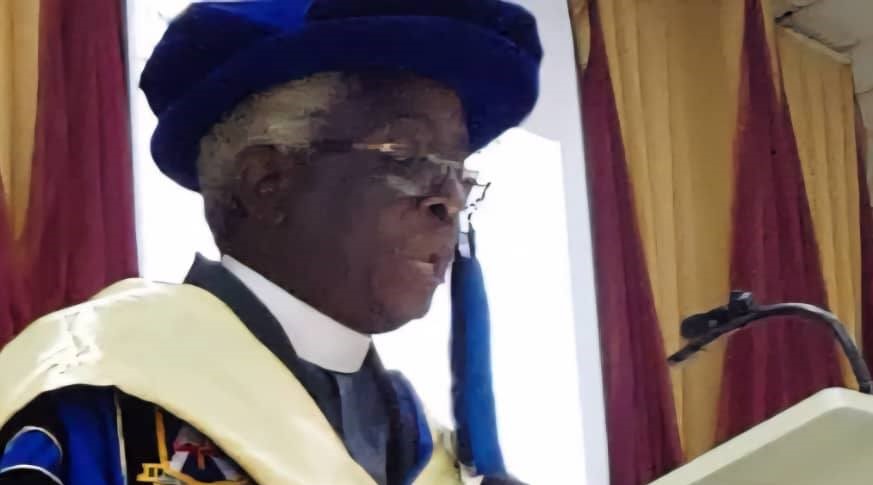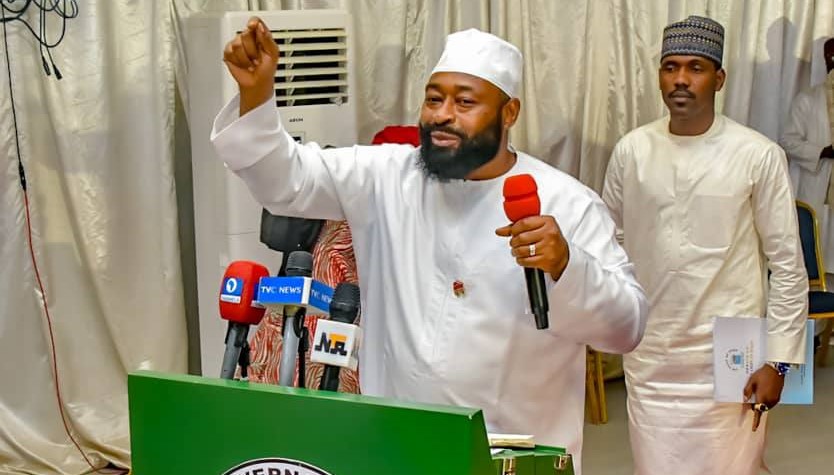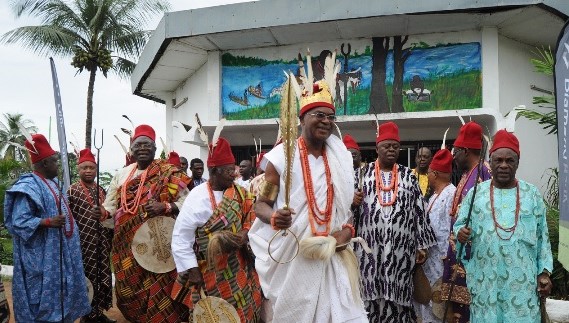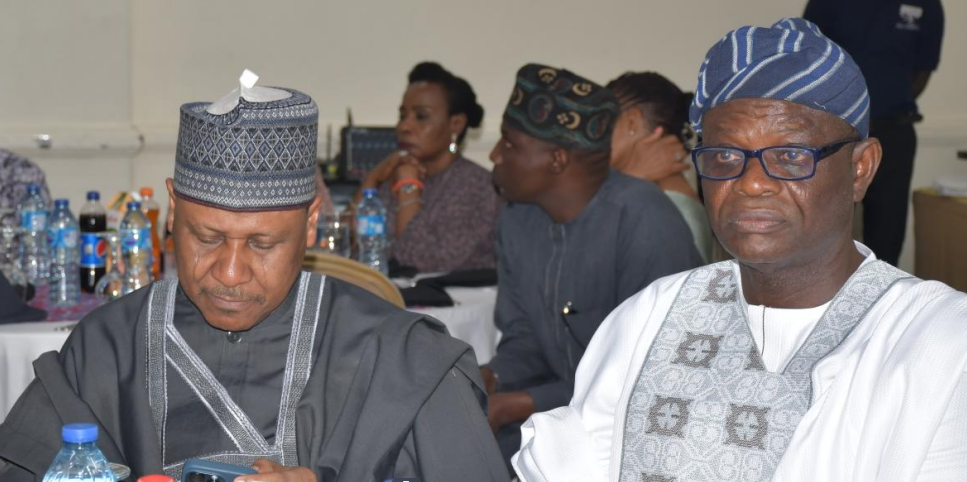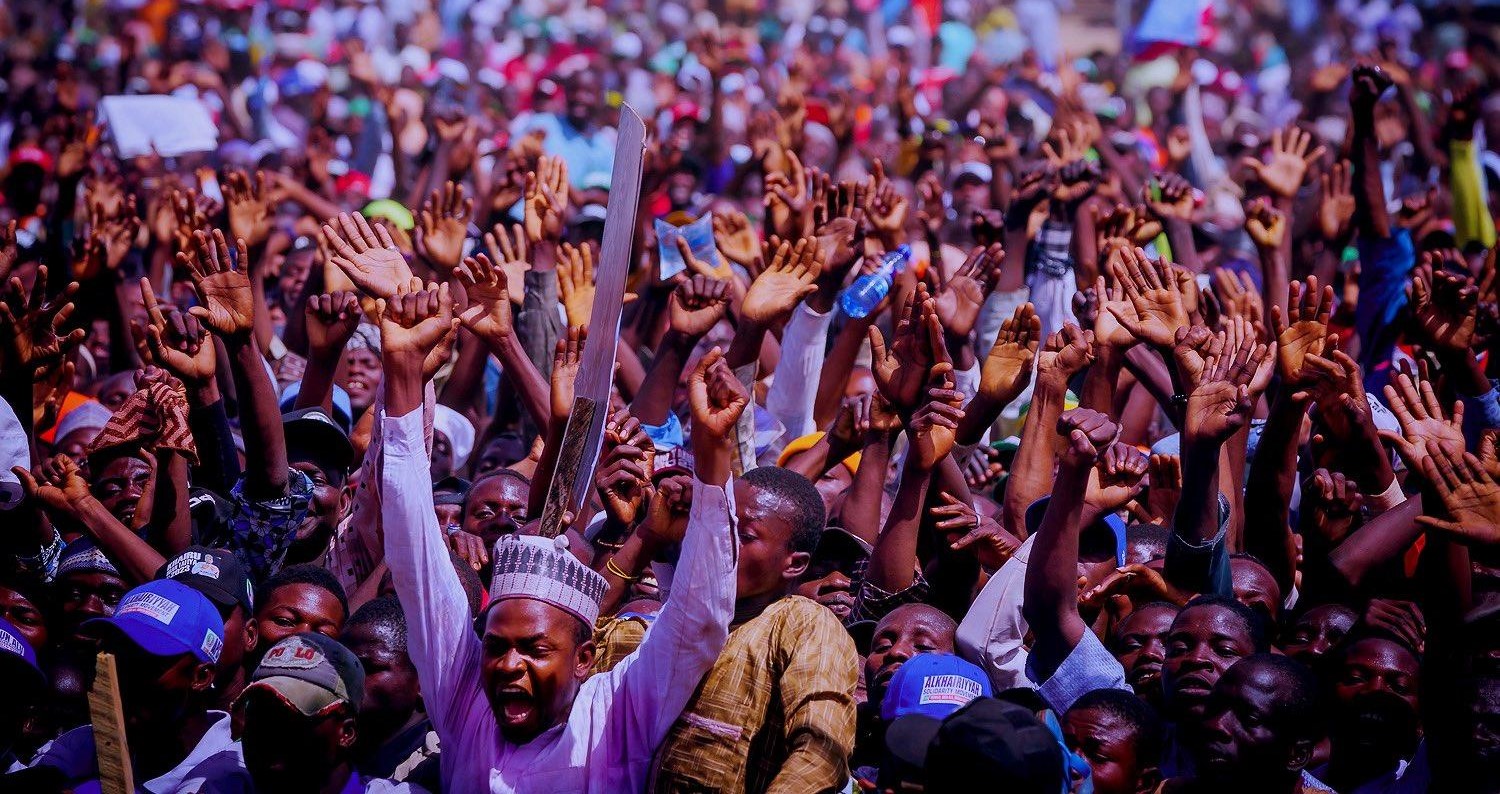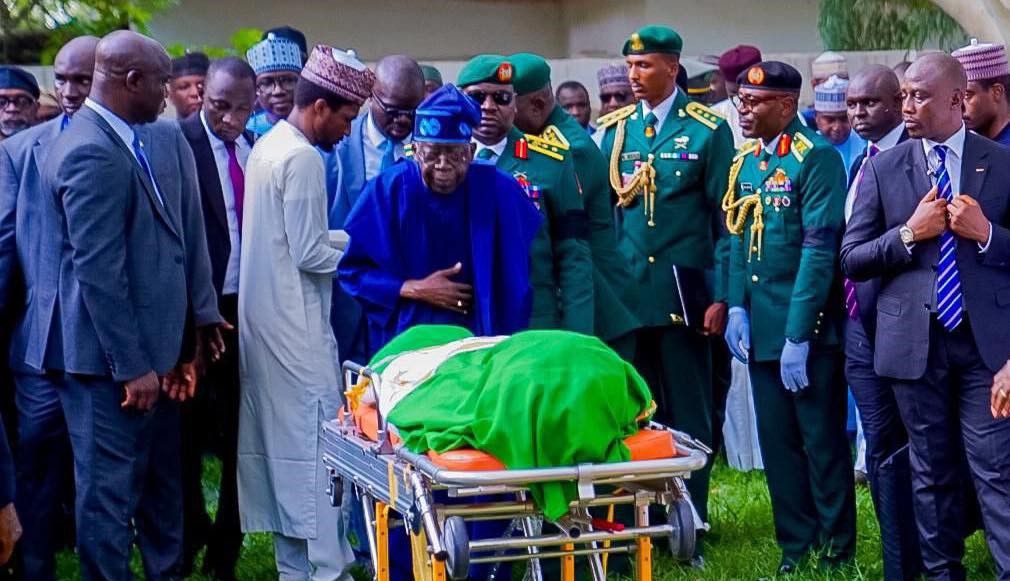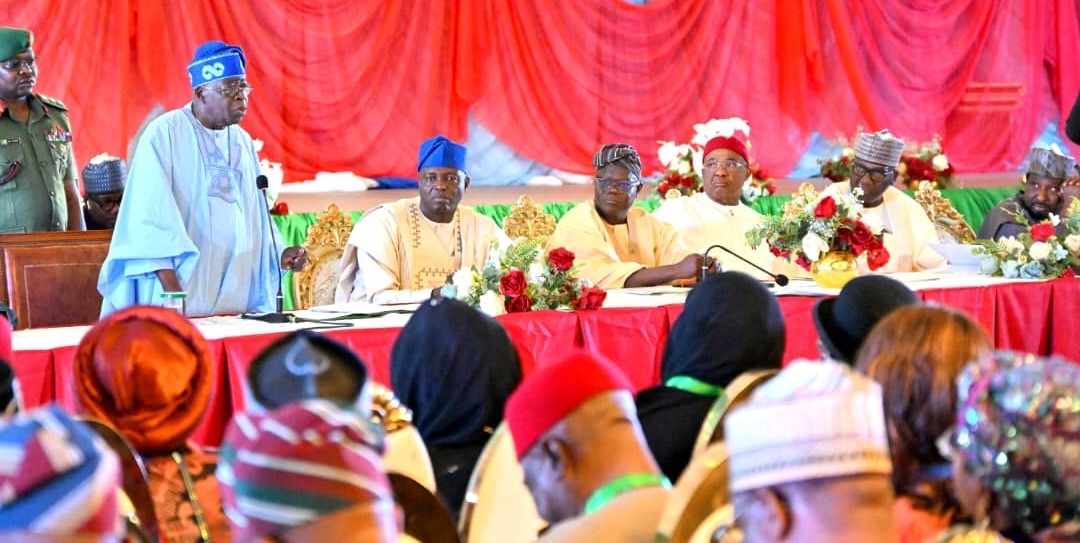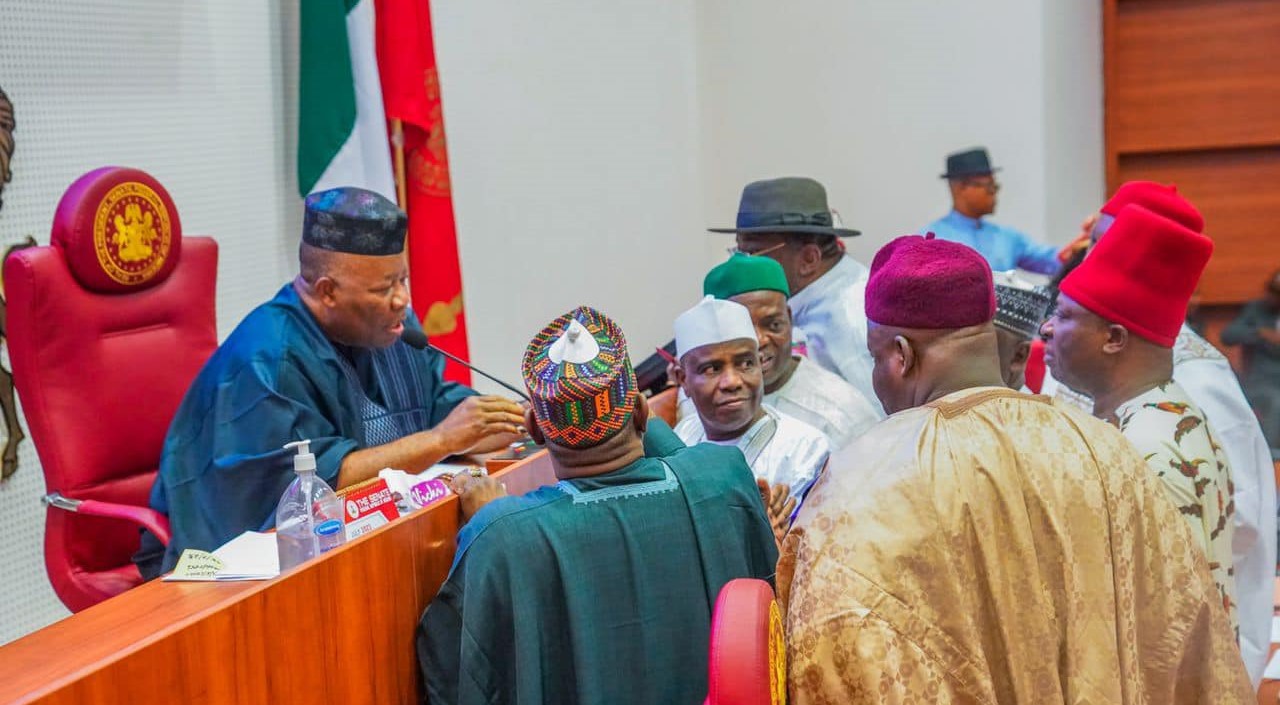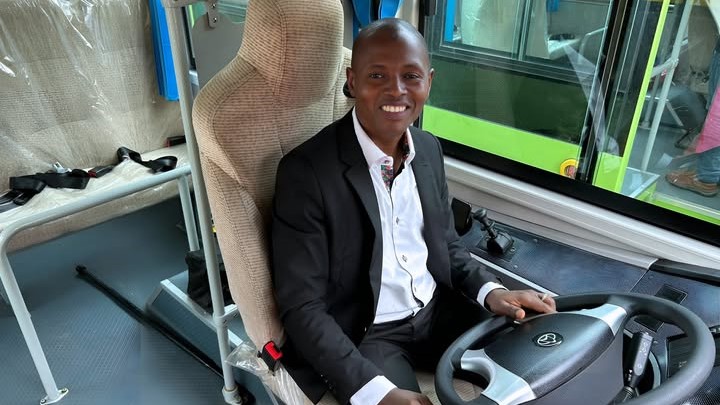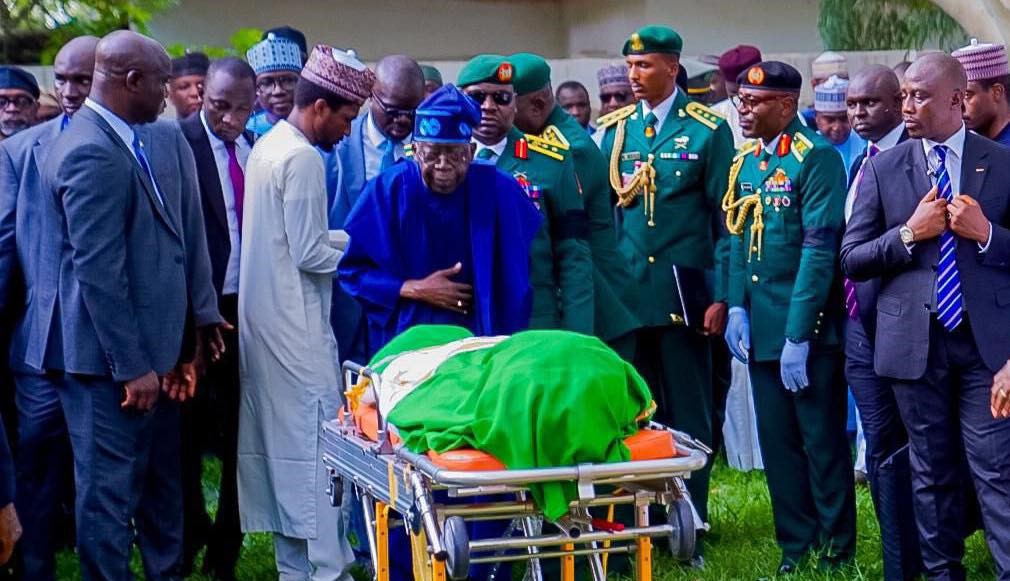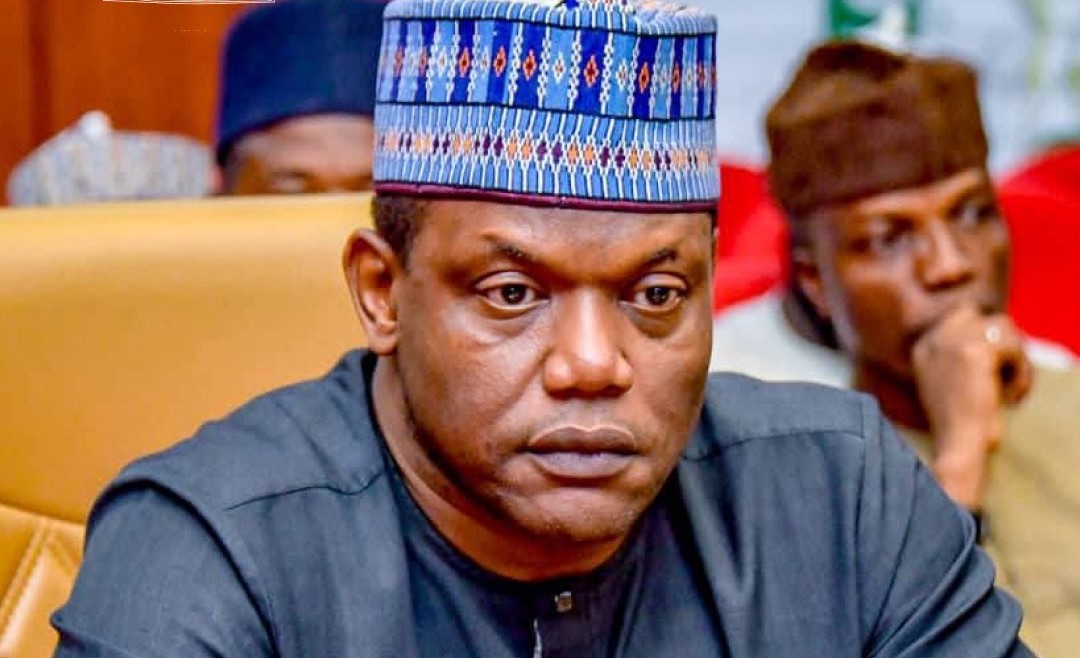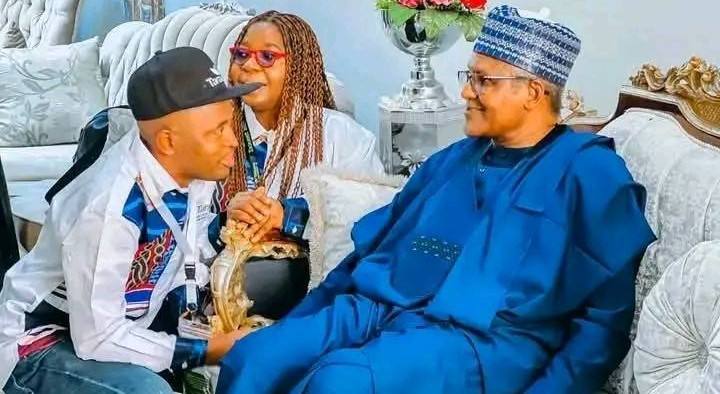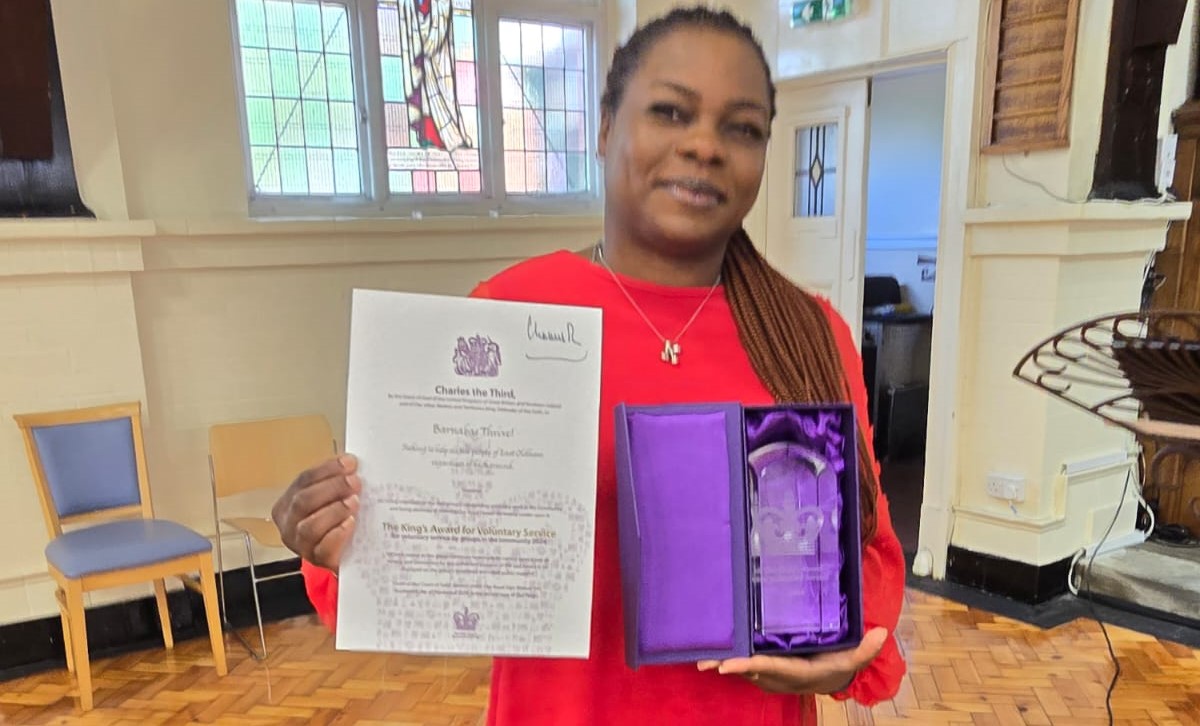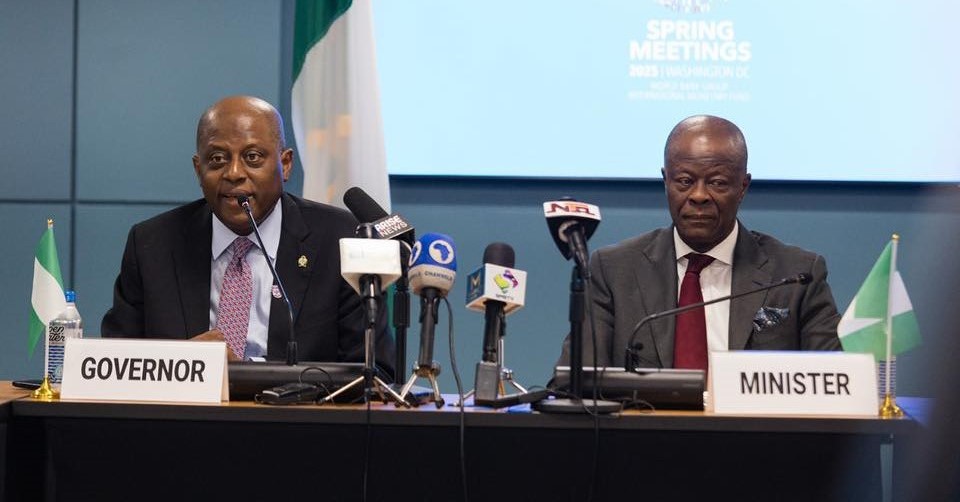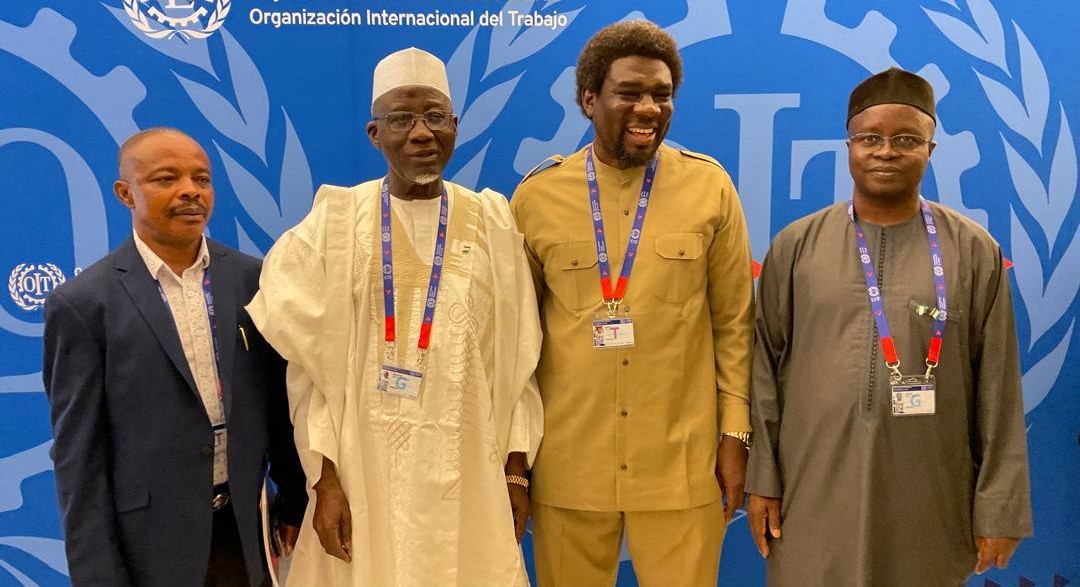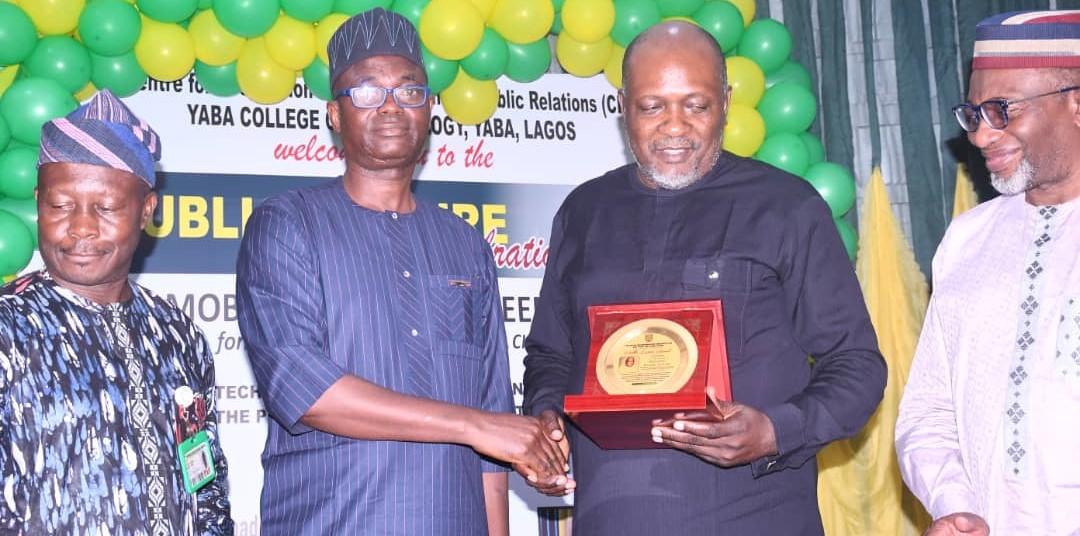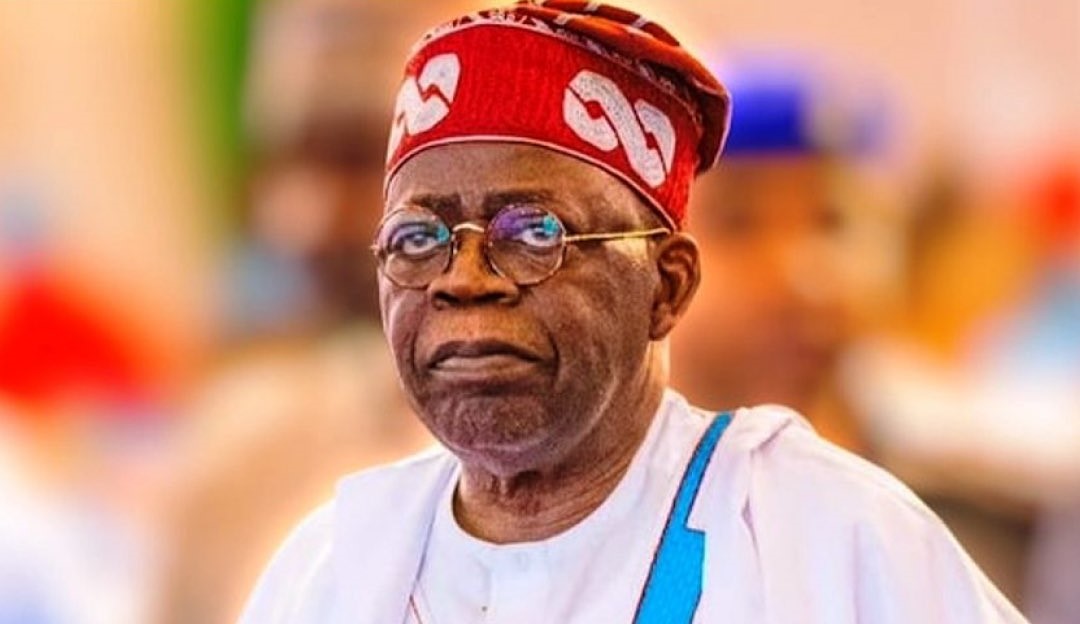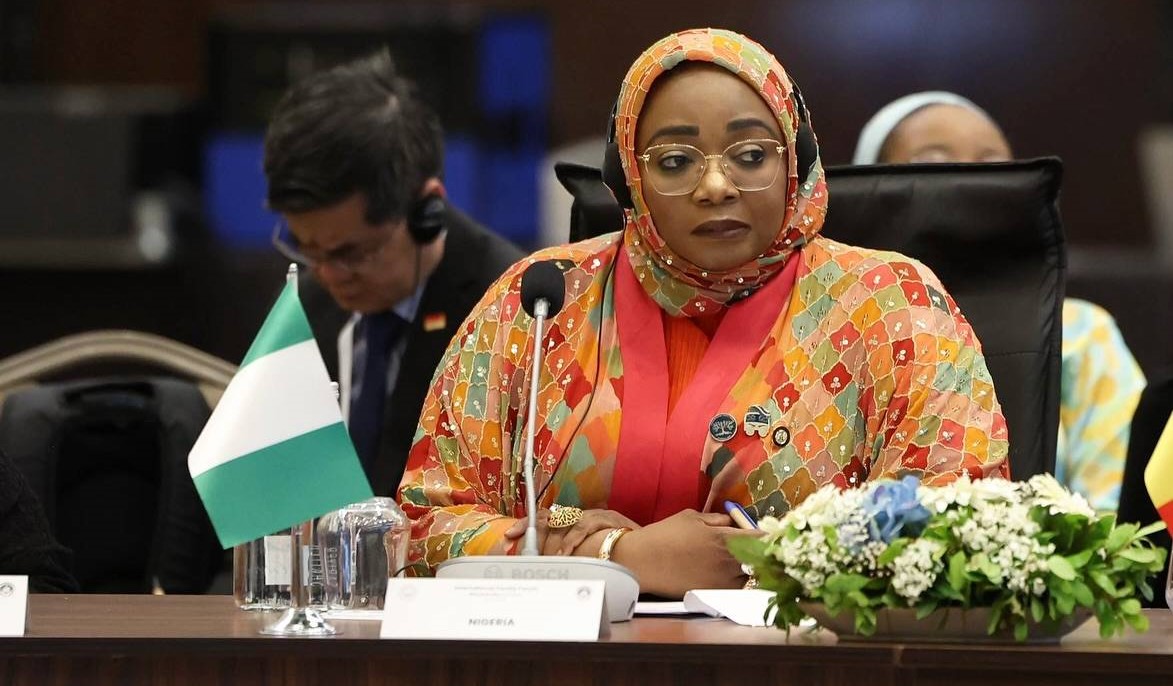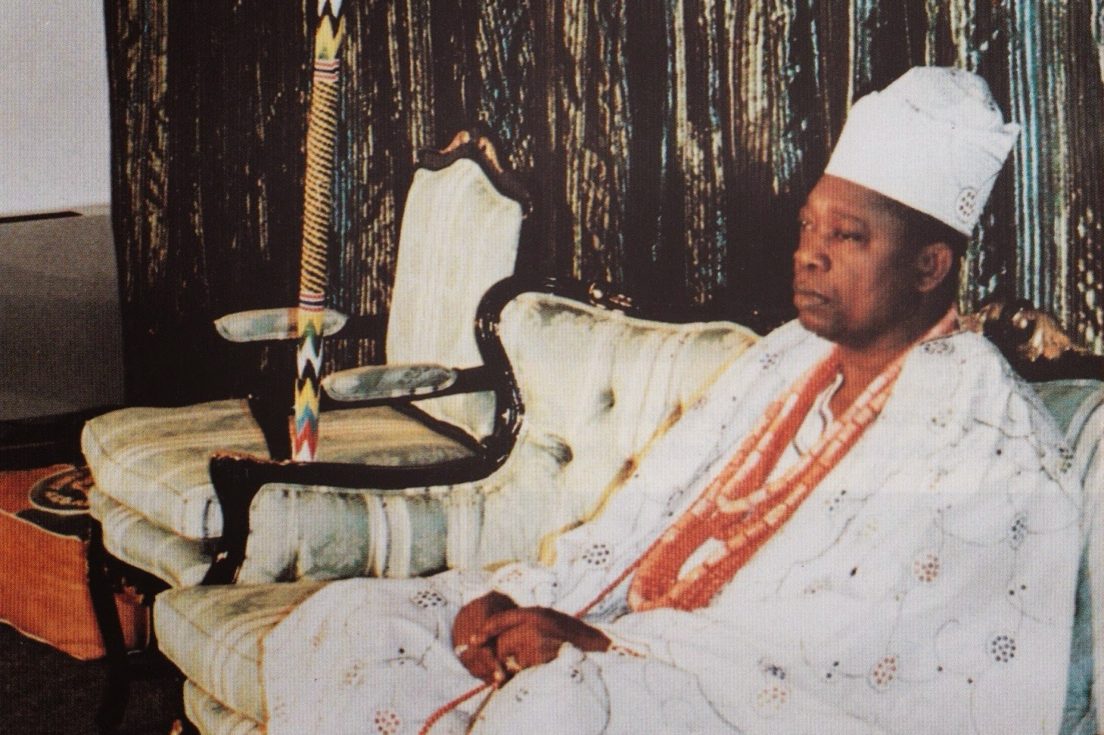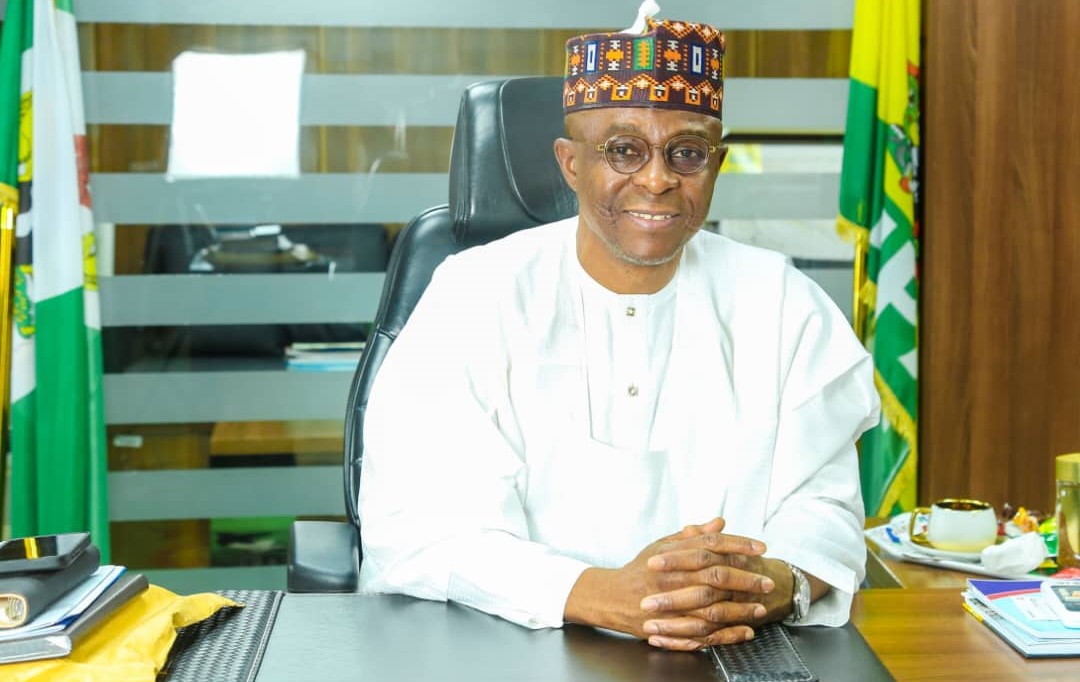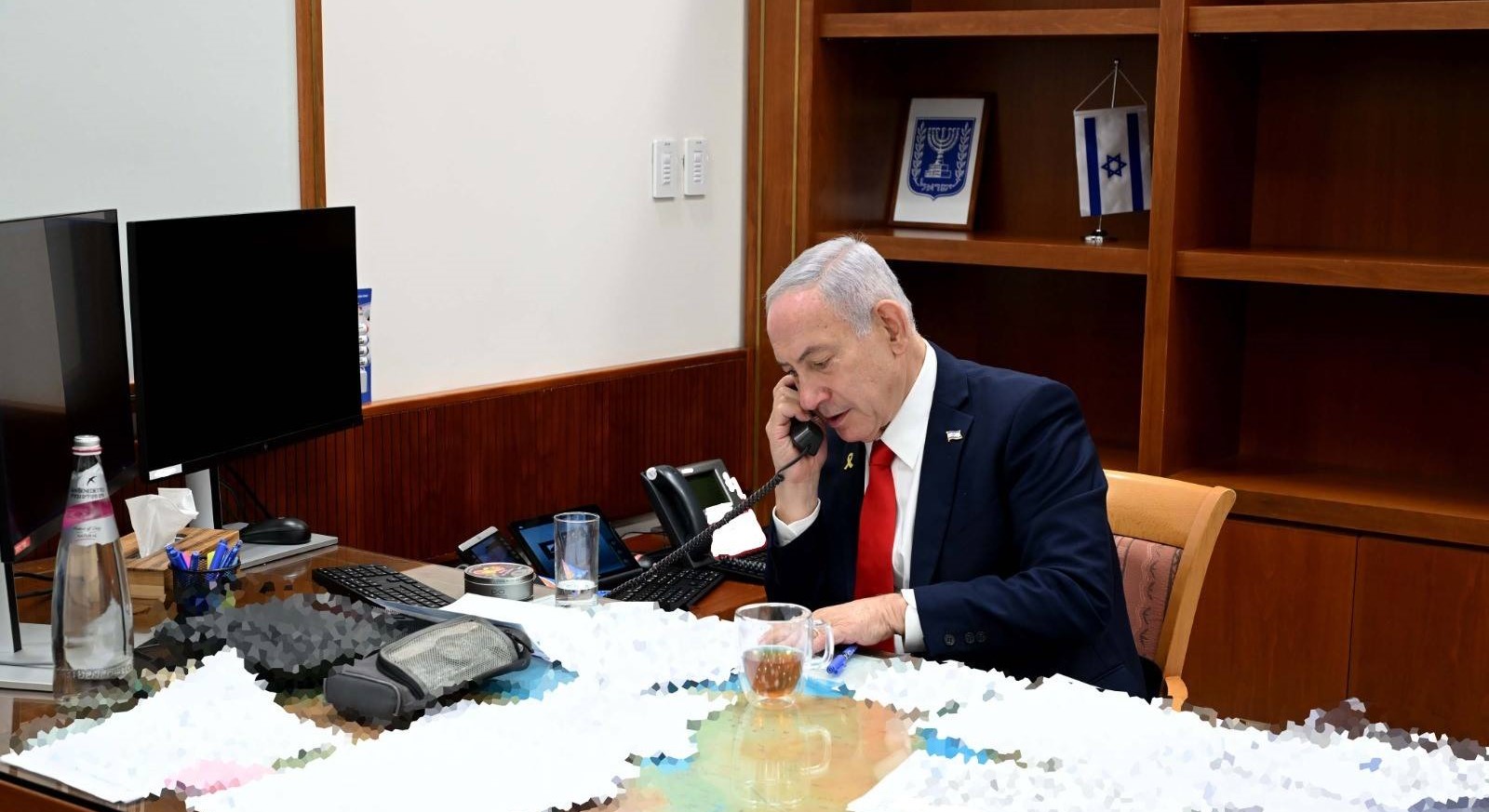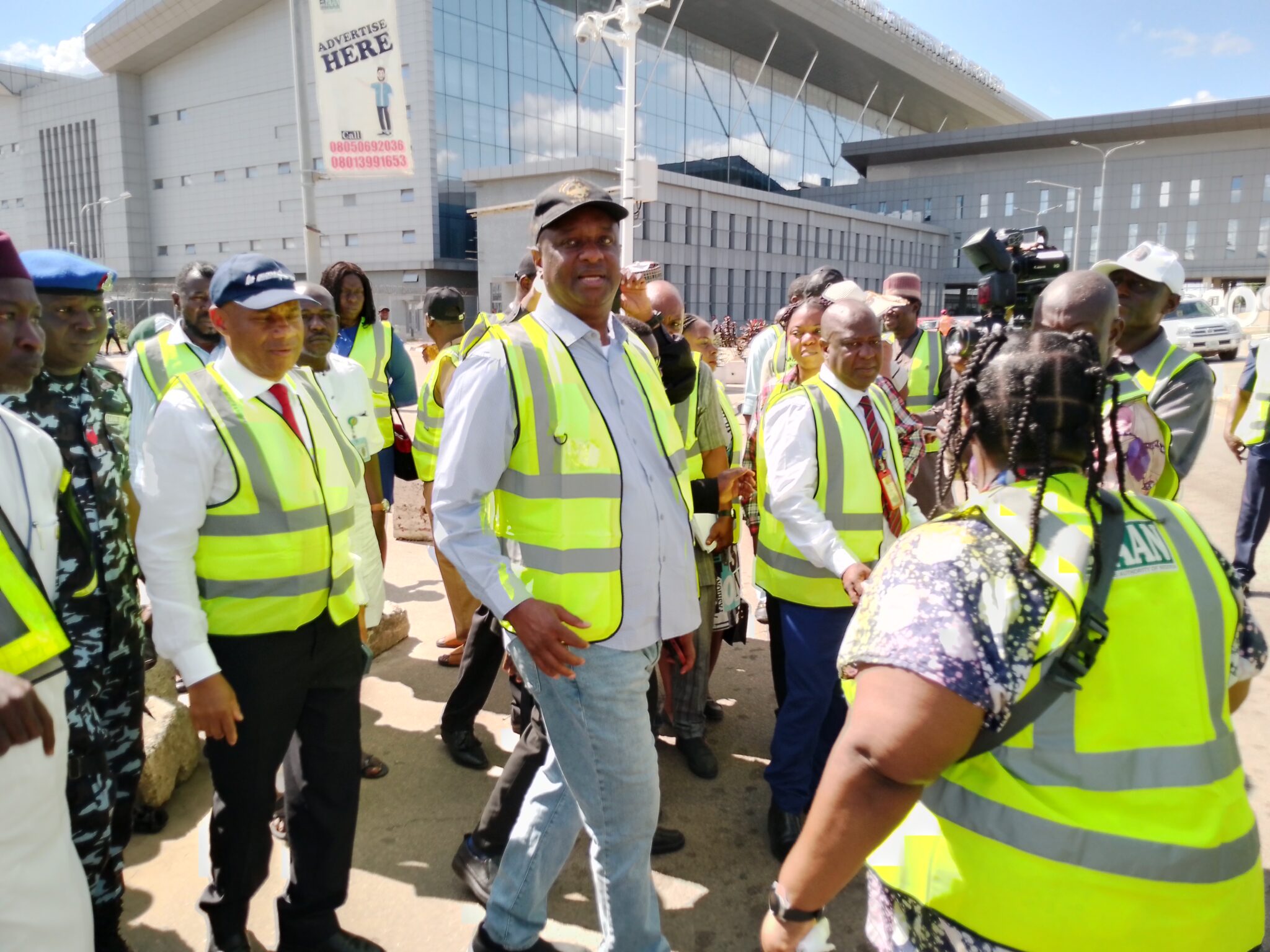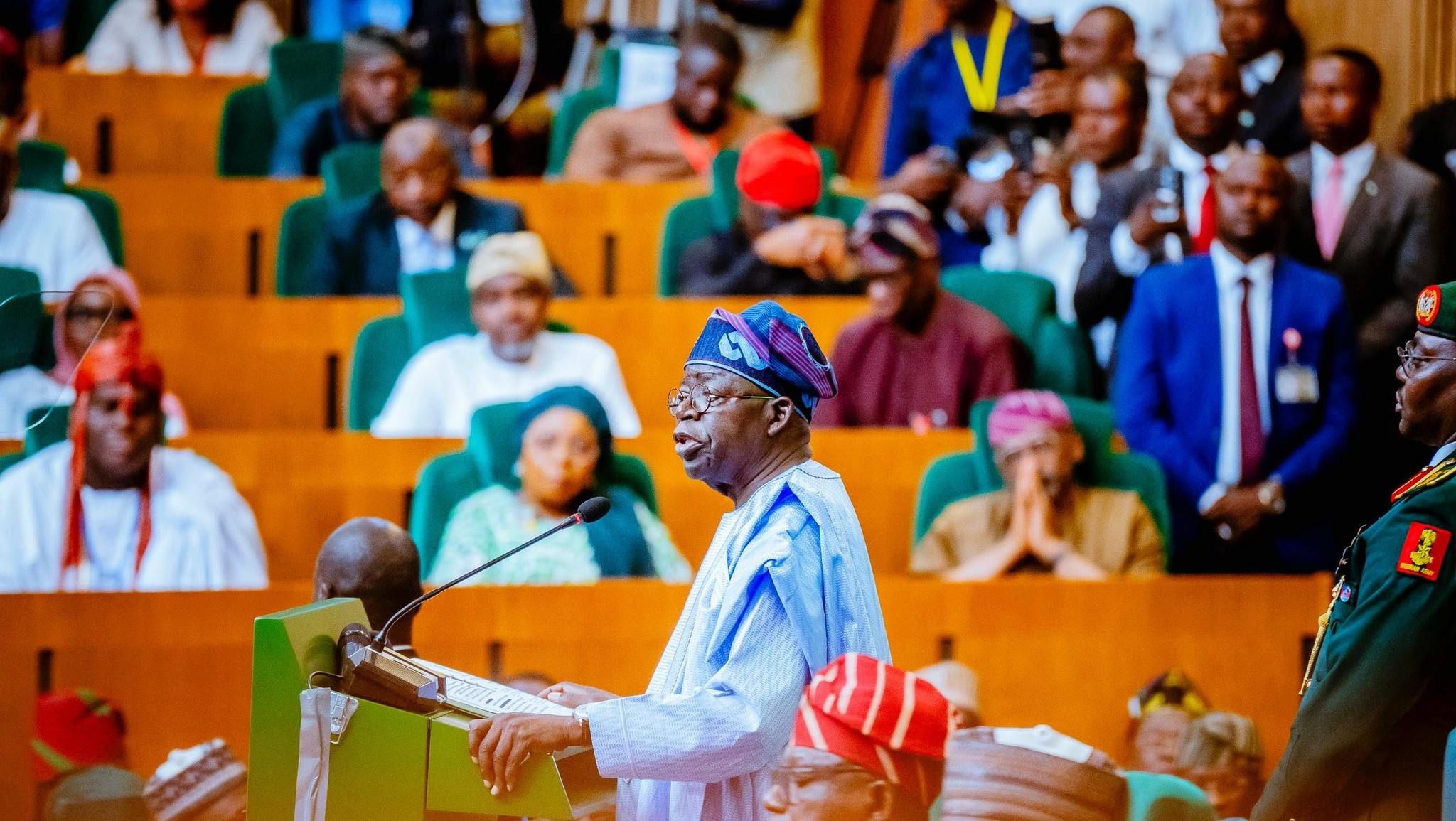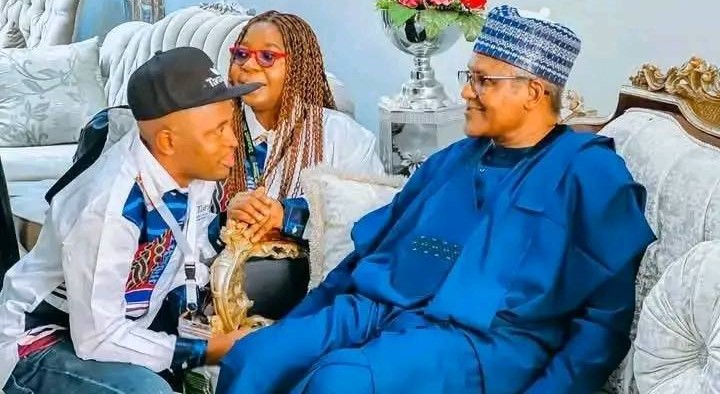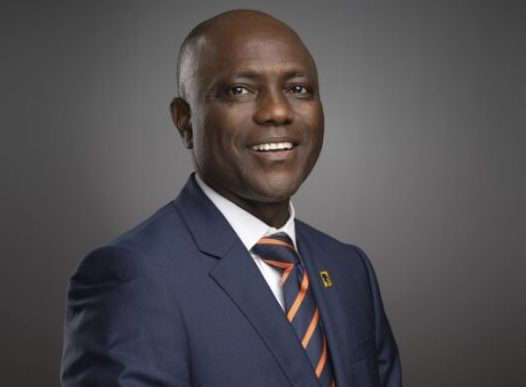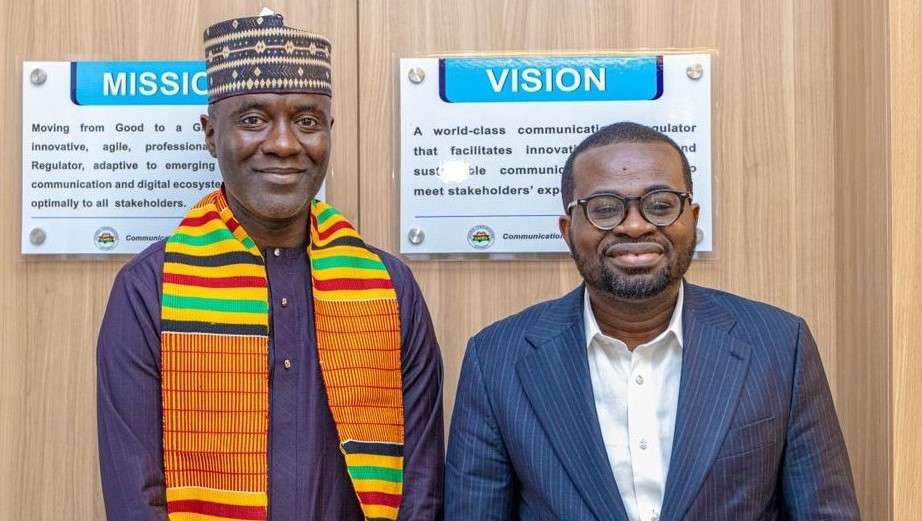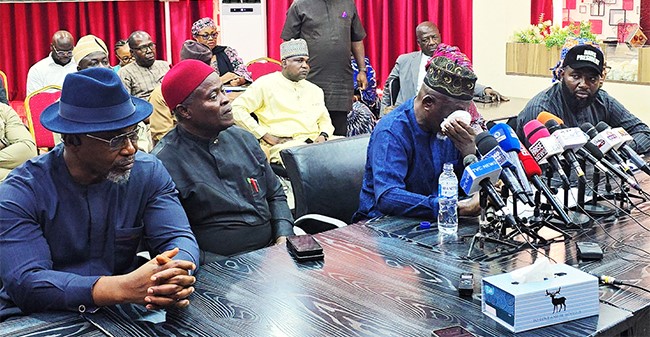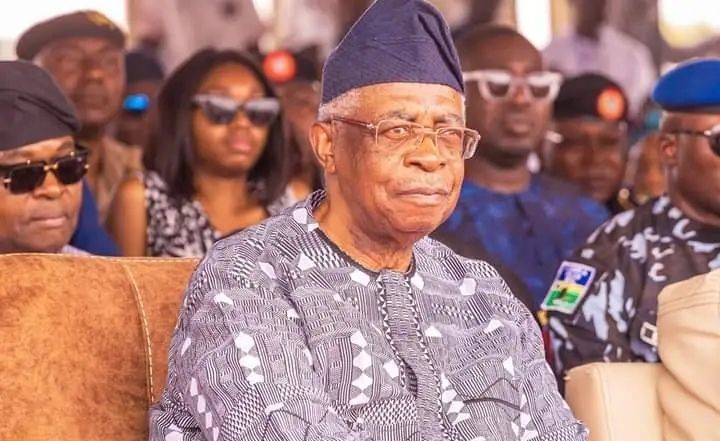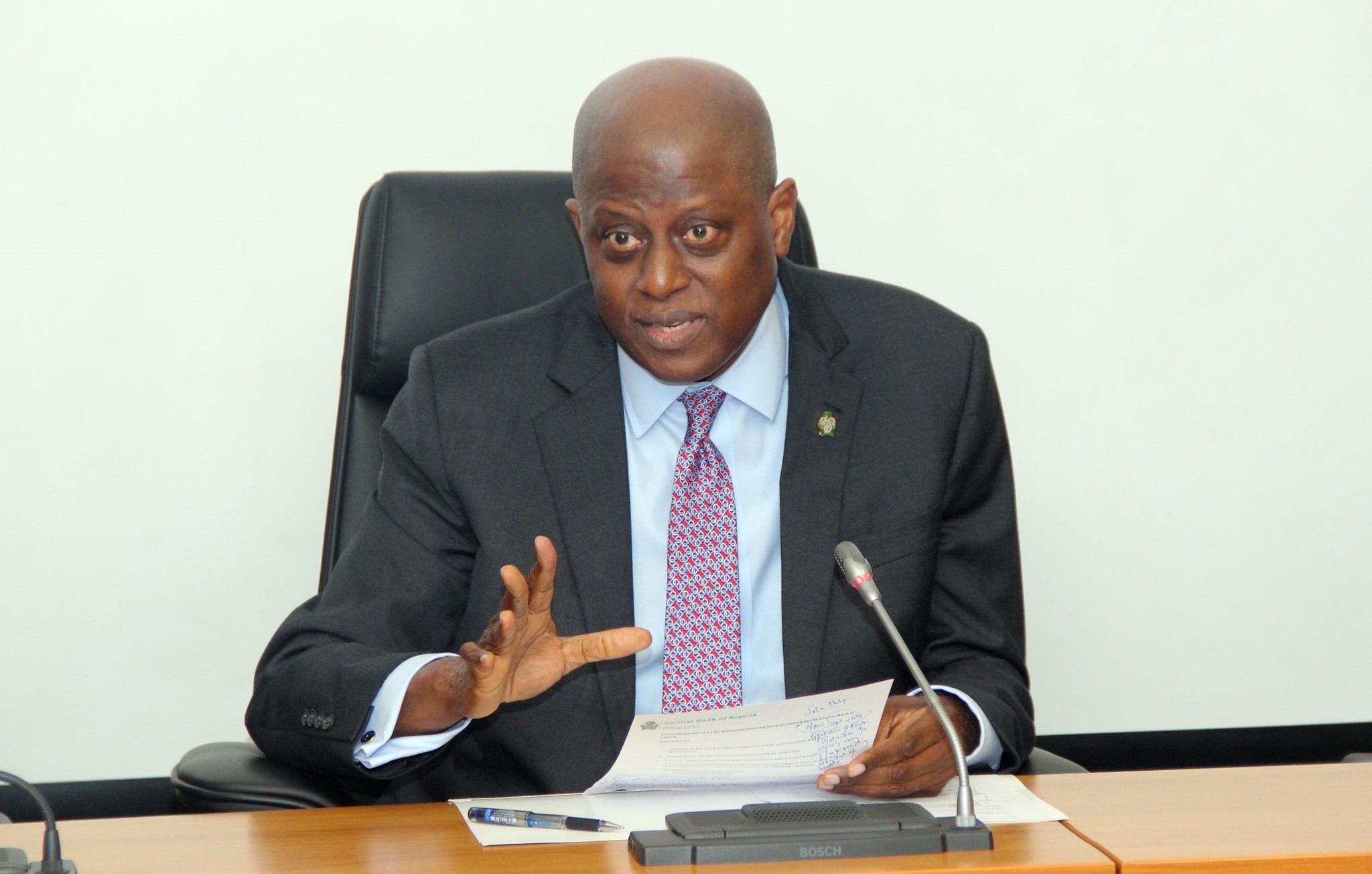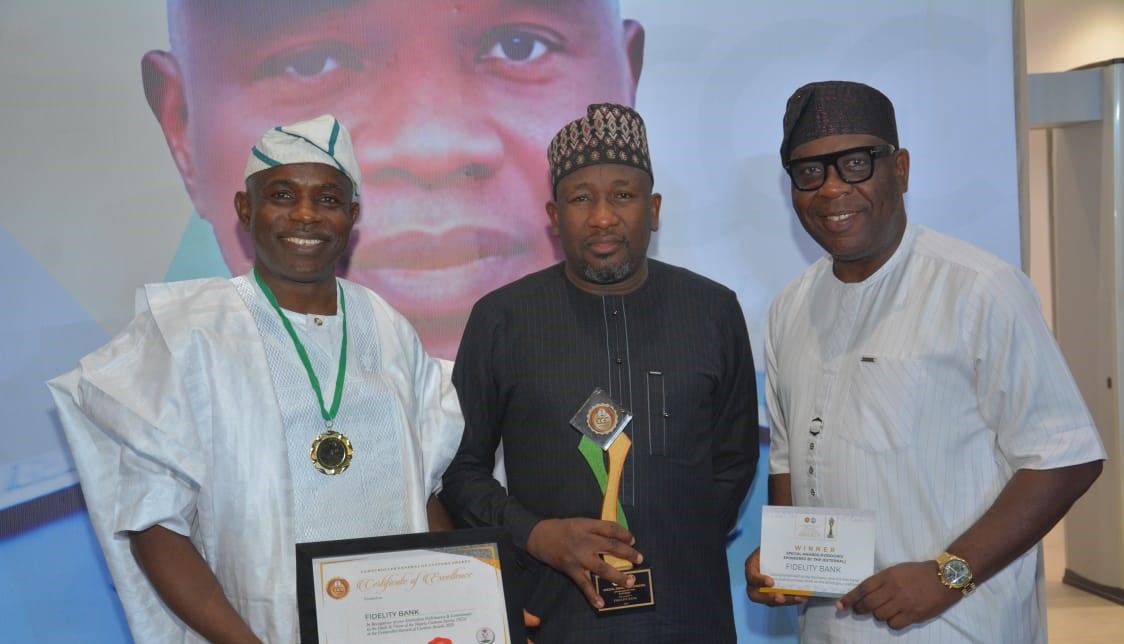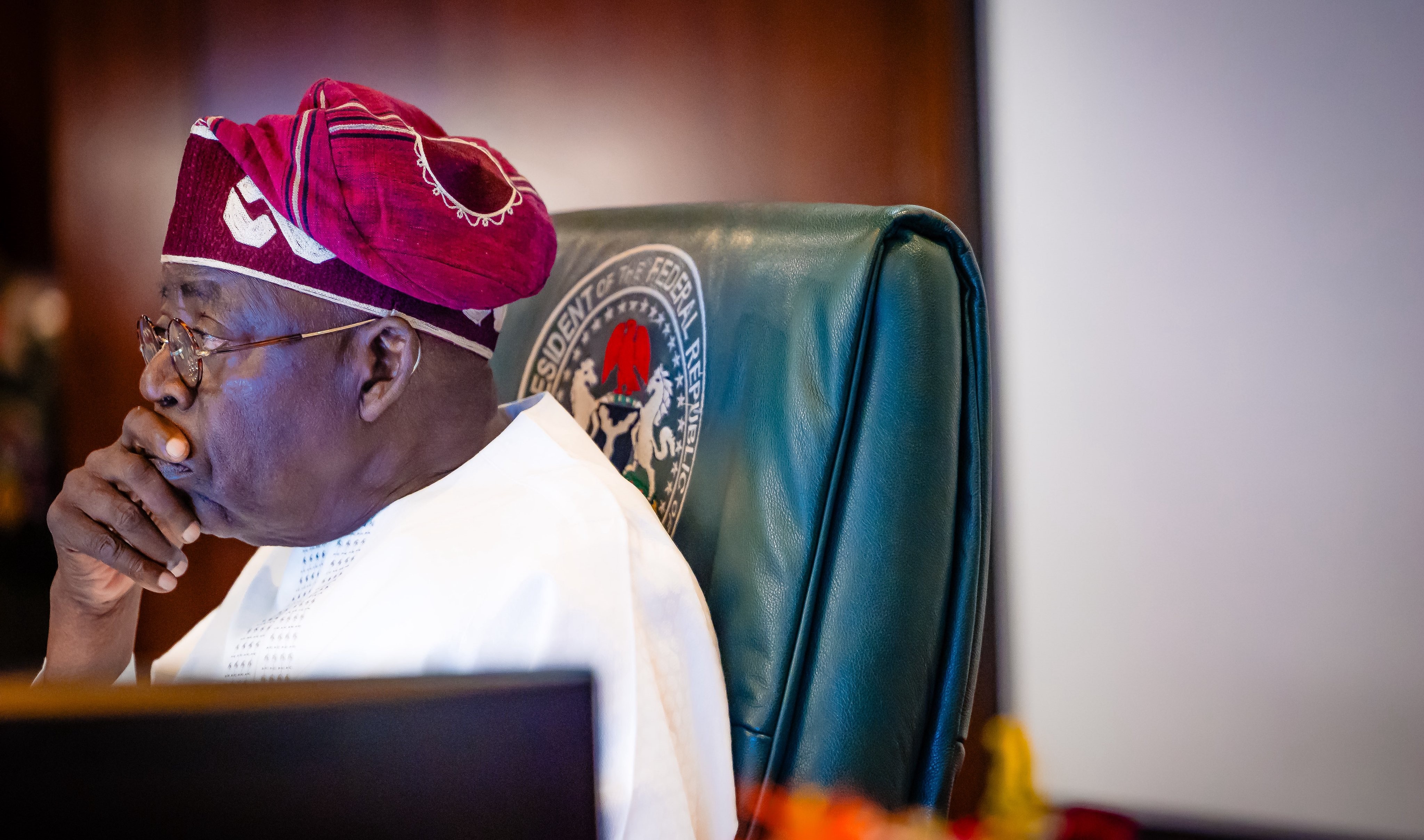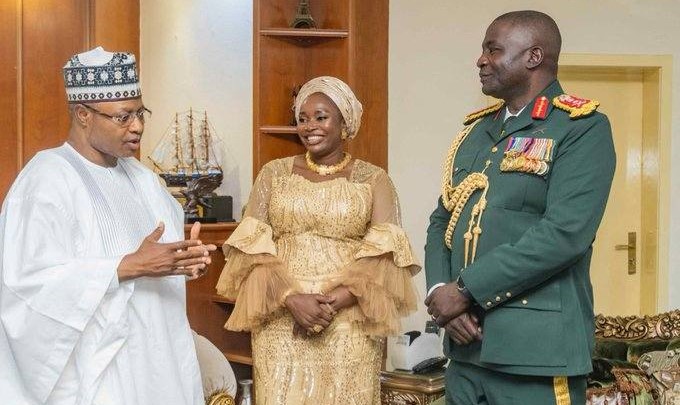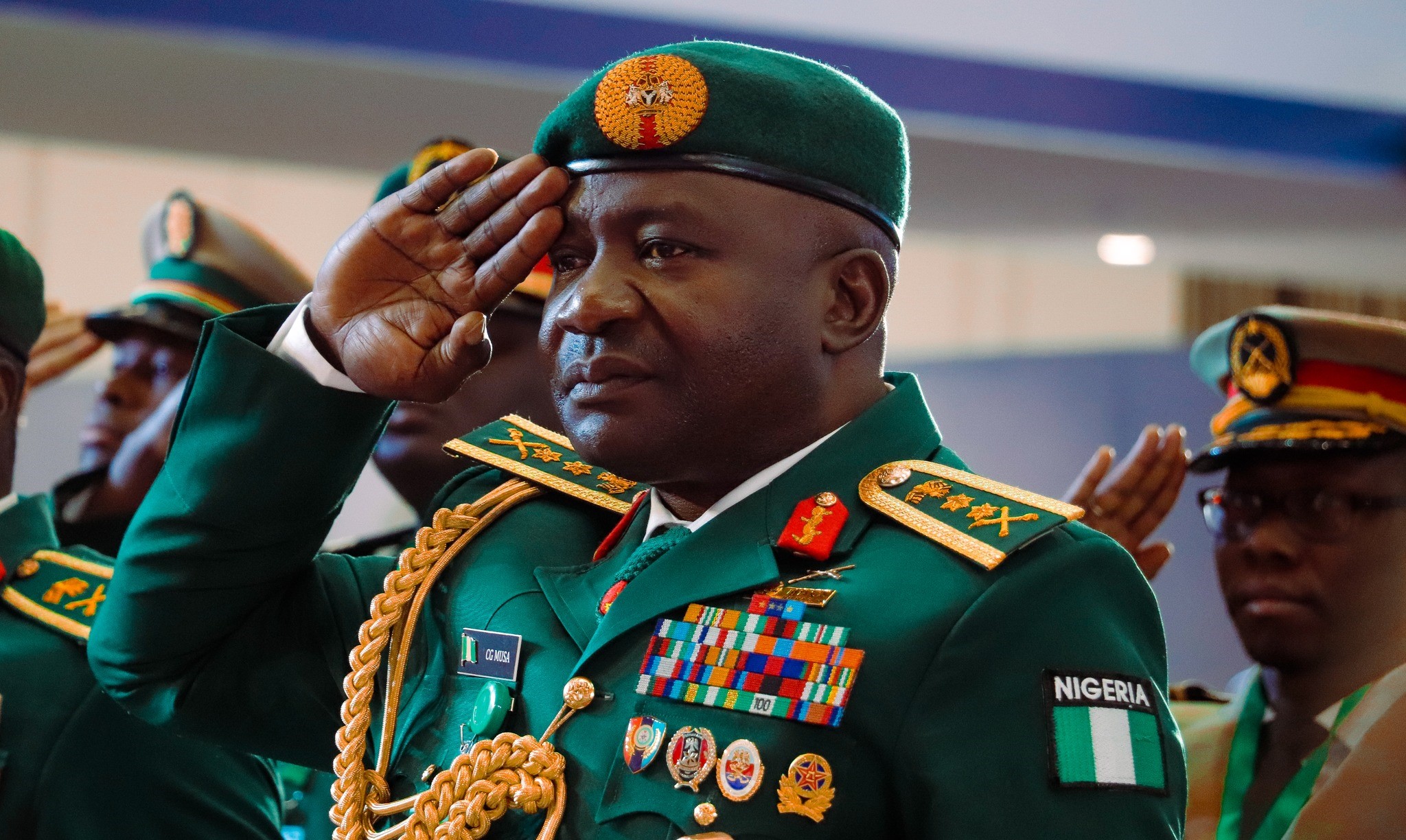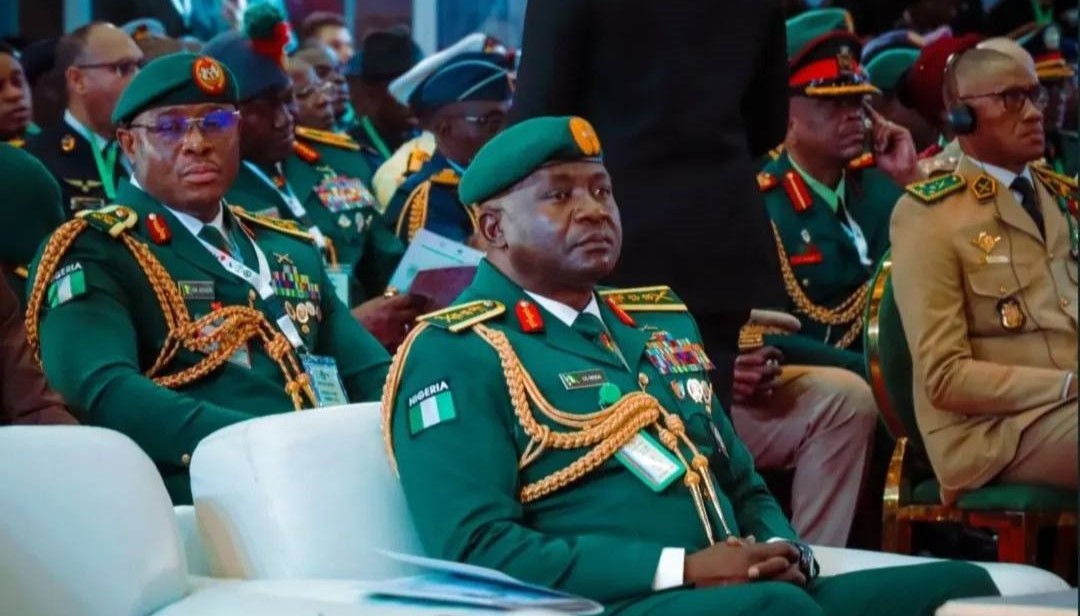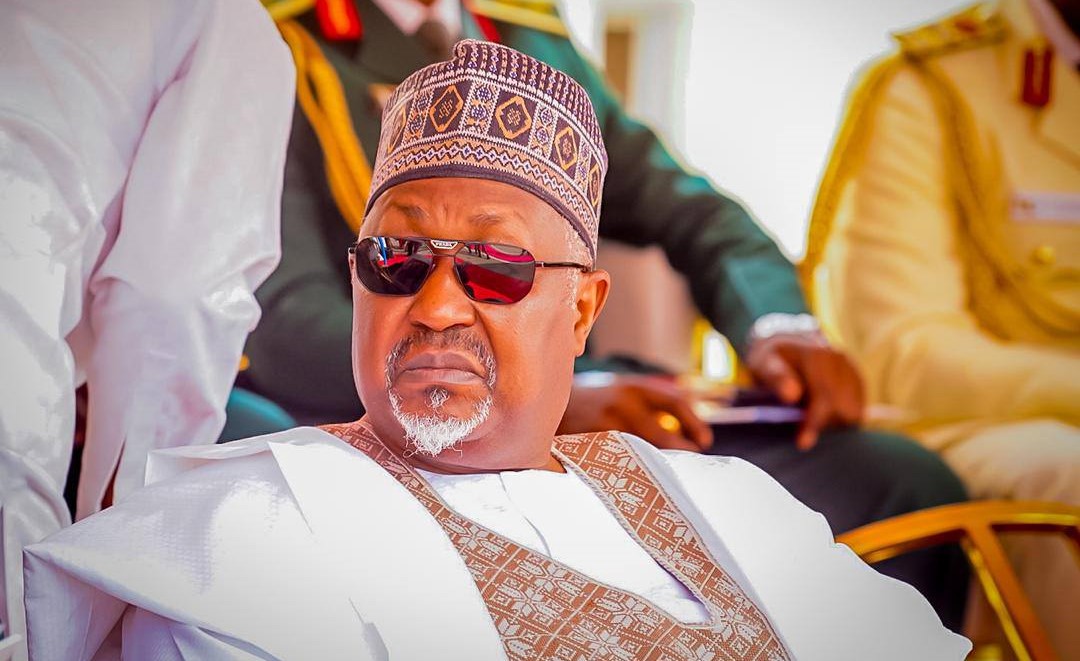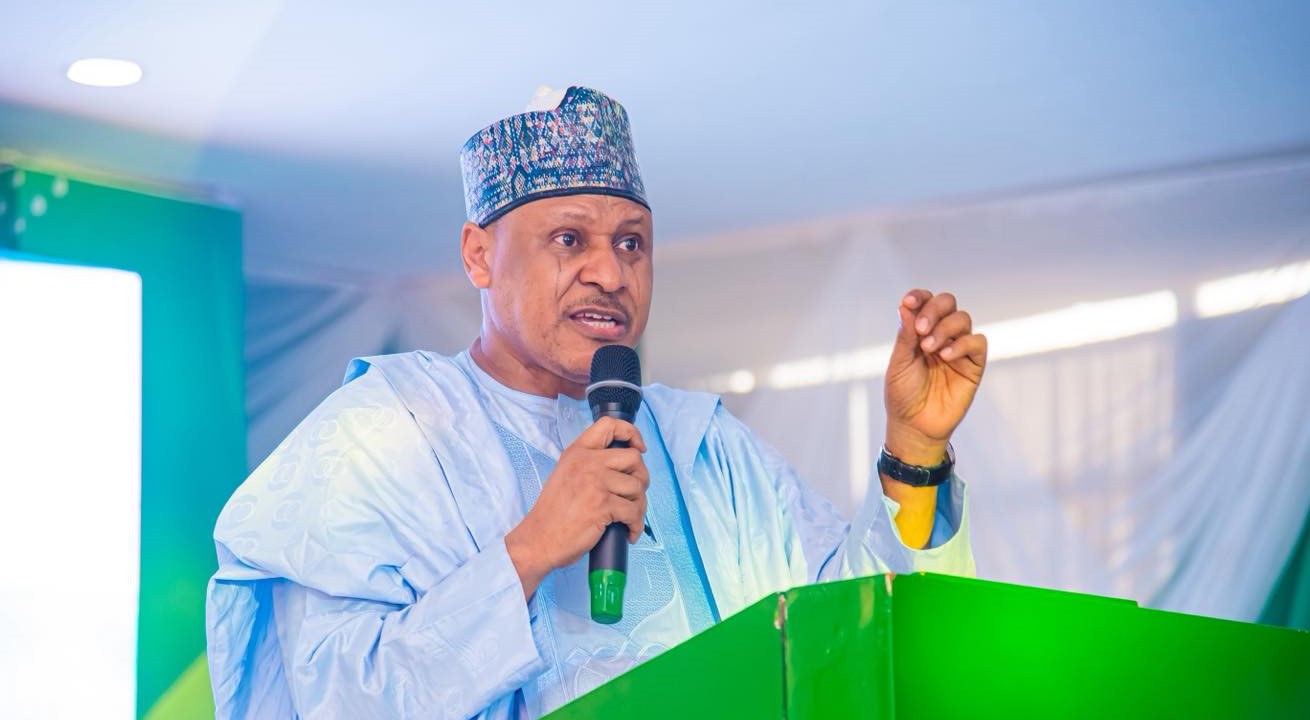Presenter
Yes, it's always a pleasure to be with you on Insight at Citizen 93.7 FM here in Abuja. My name is Lawrence Umoete. Welcome to the show. It's exactly 32 years since June 12, 1993 presidential election won by the late Bashorun MKO Abiola. But that election was annulled by former military president, General Ibrahim Babangida, Rtd. Today on Insight, we take a reflective journey back to one of the most defining moments in Nigeria's democratic history, June 12, 1993. It was the day Nigerians came out in large numbers to vote in what is widely regarded as the freest and the fairest presidential election in our country's history. As we remember June 12, we ask, what lessons have we truly learnt? How far have we come in deepening democracy? And how far do we still have to go? Join me shortly to share insights on this historic day and its lasting legacy. Stay with us, this promises to be a powerful and reflective conversation. You can join our live stream on Citizen FM 93.7, on YouTube you can type in Insight, and then you will be part of this show from anywhere you are on the surface of planet Earth. You can also listen to us online on www.citizenfm.ng. And not forgetting our social media platforms on Facebook at Citizen FM Abuja. On Instagram at Citizen FM 937, and also on X at Citizen FM 937. Welcome to the show once again, my name is Lawrence Umoete. Well, our guest on the show today is Alhaji Jamiu Abiola, son of the late Chief MKO Abiola, and the winner of the 1993 presidential election, and also the proud son of Alhaja Kudirat Abiola, that heroine of the June 12 struggle. Welcome to the show, Alhaji Jamiu. Welcome to the show.
Guest Speaker
Thank you very much, I'm glad to be here.
Presenter
All right. Um, Alhaji Jamiu Abiola is currently the senior special assistant to the president on linguistic and foreign matters. Uh, he was before now special assistant to the president on special duties in the office of the vice president. And also not forgetting that Alhaji Jamiu Abiola is the Shettima Rasheed of Borno. Once again, it's a pleasure to have you on the Insight, Alhaji.
Guest Speaker
Thank you so much.
Presenter
All right. Eh! maybe we just start, uh, this with, uh, Alhaji Jamiu. Uh, first, uh, on a personal note, uh, how has it been for the Abiola family in the last 32 years?
Guest Speaker
Well, it had been, uh, like a rollercoaster ride. You know, what happened to us was like a hurricane. And, uh, we thank God that we are able to survive it because, uh, it is not easy to carry a whole country on your shoulders. I mean, you win an election that you now become from the victor or from the, uh, winning party to the one that is being prosecuted, prosecuted by a very powerful military government, and a very, very wicked, uh, ruling elite, as in the military ruling elite. It was, you know, very, very brutal, especially the five, the years of Abacha's government, which year was from November 1993 to 1998, June 8, when he passed away. Then, uh, we now had General Salam came on board and-... that this is going to be a beginning of emancipation, freedom, in terms of, like, our breadwinner, Chief MKO Abiola coming out of jail. By then, my mother had been killed a year and a half before Abacha died. But, you know, Abdulsalami, you know, he, he released everyone, all the notable political prisoners, but left my father, you know, where he was, in detention. And he actually even made it impossible for any family member to see my dad till a day before he died, you know. I mean, Abacha died in June 8, and the family members were only allowed to see my dad July 7. So almost 29 days, you know. Just as he was about to be killed or... That is when they were allowed to see him. But before that, they allowed Kofi Annan, who was the Secretary-General of the United Nations, and Emeka Anyaokuwu, who was the Common Wealth secretary-general. They allowed people like that to see him, as if those people were more important to my dad than his own family, you know? So it was from there, you know, the struggle continued, even after he died. To date, there has been a very, very terrible three decades. But we thank God we're... as a family, we survived and we are still surviving. (sniffs)
Presenter
O- o- okay. Uh, you said, uh, the family was not allowed to see Chief MKO Abiola until a day before he died. Uh, so that means the family members saw him, uh, 24 hours before his death, uh. Were you part of that delegation or, uh, do you know what happened? What happened? What did they say? How was the last 24 hours with the family before he died?
Guest Speaker
Immediately after Abacha died and the new head of state emerged, the family had been reaching to General Abdulsalami that they wanted to see Chief MKO Abiola again. And they... uh, when I say the family here, I'm talking about, like, the matriarch of the family, which is Mrs. Adebisi Abiola, and, uh, the other, um, wife was in the house with Chief, um, Tuni Abiola. They tried and tried and tried and tried. And, uh, they finally got approval on the 6th of July that they should come and see him. By that time, I was still in the United States. I hadn't come back to Nigeria yet. Uh, you know, I came back to Nigeria much later. So the family members that saw him were Chief... Mrs. Adebisi Abiola, Chief Tuni Abiola, and Mrs. Lola Abiola, who was, who is my father's eldest child. They saw him from, like, 8:00 in the night of July 6 till, like, around 10:00, 11:00 on July 6. It was the following morning that he was now... well, he now died from a supposed heart attack. You know, so what we're talking about is, like, for 29 days, he wasn't allowed. So what we now... What I now concluded was that they were only allowed to see him so that it's on record that they saw him before he died. Because if they, they didn't see him, and he died, then they would have said the family did not see him and he died, it would have made the government look very, very bad. So I assumed that the approval was only given for them to see him because it was known that he was going to die. When they saw him, he was in very, very bad condition health-wise. He said he had fever, he said he wasn't feeling well. He even said, you know, he's been dreaming about my late mother, Olajoke Kudirat, and his... and my late stepmother, uh, uh, Alhaja Simbiat, that he saw them. So he was more or less hinting that he believed he was going to die. But, you know... And he was... Then the issue of his health was not really... it was not good at all, and he complained bitterly about that. So then he wasn't healthy, then he should have been released for medical checkup, but they just kept him, and he finally died.
Presenter
Mm-hmm.
Guest Speaker
So it was a very, very, you know, tragic event. You know, it was terrible.
Presenter
Okay. Uh, I also know that, uh, you were, like, about 18 years, uh, when the June 12 election was annulled, and about 23 or thereabout when he died. Uh, what was your personal relationship like with your dad, even though you were mostly in the United States?
Guest Speaker
Well, I was very close to him because I used to come home for every holiday, and, uh, I was his only child that could speak more than, um, two languages. So I... Whenever he has guests that come from Northern Nigeria or, or from the Arab world, or anything, or from, uh, Francophone Africa, he will call me.
Presenter
Okay, you speak Arabic and French.
Guest Speaker
I speak Arabic, I speak French, I speak Hausa, I speak German, I speak Italian, I speak all of them. You know? So he would call me, I should come and translate for him, and I'll always be in between and all of that. So through those, I was able to get very close to him. You know, it's difficult to be close to a father that has so many wives. You know, we, we grew up in the same house, and he had four wives in that house, but he also had a lot of women in his life outside the house as well.
Presenter
Mm-hmm.
Guest Speaker
So he was more or less everywhere, in terms of, like, he had people, like relations and, like, you know, children here, children there. And he also, you know, was also a philanthropist, and he was also somebody that was a politician. So... Well, at that point, he was a politician, but he was a philanthropist, too. He was more or less like his life was 70% dedicated to outside the family, you know. So he was... So but then through this, uh, uh, helping him with language interpretation, I was able to get very close to him, and, uh, we now had a special bond through that. And, uh, we were able to talk more and more. And because I could speak Arabic, he just felt like I was an angel, you know. He felt like somebody that can speak Arabic, knows the Quran, cannot do anything wrong. So if I told him anything, he would say, "Yes, it's true," because he speaks Arabic, you know. But obviously (laughs) you can... (laughs)
Presenter
So, so were there times you used that, uh, to your advantage?
Guest Speaker
Well, I don't think I was-
Presenter
Just to get something from Daddy?
Guest Speaker
(laughs) I can use that, yes, but, I mean, I will not, you know, go further than that.
Presenter
Okay. Uh, I'm sure that there has been a lot written about your dad's, uh, public life, uh, his, uh, philanthropism, and stuff like that. Uh, but we want to know the Abiola as a father, the Abiola as a family man. From your perspective, how was he?
Guest Speaker
He was a very generous man, but I just told you now, he was more divided in terms of, like, his time was more dedicated outside. As a matter of fact, you know, to make, uh, a long story short, you know, I wrote, in 2015, which is, like, 10 years ago, I wrote a book called The President We Never Ruled.
Presenter
Mm-hmm.
Guest Speaker
That book is on Amazon. I wrote the book in Arabic and I wrote it in English. And I also wrote another book in 2016 called The Stolen Presidency.
Presenter
Presidency.
Guest Speaker
So I've written two books about him, and those books are in-depth. The books, those are just, uh, uh, not just talking about him as a father, but talking about him as a child, when he was a child, as a son to his own father.
Presenter
Mm-hmm.
Guest Speaker
Talking about him as a student, talking about him as a businessman, talking about him as a politician, and talking about him as, in his final role as a democratic crusader. So the book, The Stolen Presidency covers everything about the life of Chief MKO Abiola, and it's a book I wrote like a novel. I wrote it like a novel to make it more interesting so that people that read the book can see the intrigues, uh, not just like a history book where they'll say, "2004, this happened. 2007, this happened."
Presenter
Mm-hmm.
Guest Speaker
I wanted to make it fun, so I made it into a novel with characters, and it's a real novel anyway, so...
Presenter
Yeah.
Guest Speaker
But, uh, the father, to c- to answer your question, he was a very generous man, you know, a very, you know, big, you know, allowance, you know, he gave us the best education, all of that. But in terms of the distance, he, there�s always... You know, there was always a distance, and it wasn't his fault.
Presenter
Mm-hmm.
Guest Speaker
You know, sometimes he would tell us that, "I'm gonna change, I'm gonna be more accessible. Every Sunday, we're gonna only spend the time, we're gonna spend it with only the kids." And we know if Sunday will come, we'll all go to his room, we will spend the whole Sunday with him.
Presenter
Mm-hmm.
Guest Speaker
The following Sunday, he has gone again and he has forgotten about it. Then he would now come again and say, "Oh, sorry, oh, you know, but this time around, I'm going to try... Give me a couple of weeks," and from there, he will forget about it, so it's-
Presenter
Mm-hmm.
Guest Speaker
Well, that's that.
Presenter
That's the point, yeah, you people got used to it.
Guest Speaker
Yeah, we got used to it. Exactly.
Presenter
Yeah. Okay, um, certainly MKO Abiola was such a formidable and political figure among Nigerians. What do you think made this possible, especially cutting across ethnic and religious divides?
Guest Speaker
Well, what actually helped him is that he was sincere. You know, at the end of the day, if you give somebody one naira and, uh, you give it to him because you want him to do something for you-
Presenter
Mm-hmm.
Guest Speaker
... definitely, that person will take your one naira, and he might still do what you want, but he might do it with hatred. It's like a woman, you know. If you tell the woman that, "I want to give you this money or I want you to do this for me," she might actually even hate you. Even if she does what you want-
Presenter
Mm-hmm.
Guest Speaker
... she might hate you afterward. But if you give a woman all the things she wants and you don't even want her to do anything for you, and you do it because you just want to help her, she might actually love you, to the point that even if you don't even give her anything, she might still be doing whatever you want for her whenever you want her to do it. So-
Presenter
Mm-hmm.
Guest Speaker
... my father was generous to Nigerians, genuinely. He was giving Nigerians... Some people say, "Oh, maybe he did it because he wanted to gain something from them politically." He didn't do... Because a lot of people that actually benefited from him financially are not people that can actually ever help him. Number one, some of them, he doesn't even remember he helped them, so how can you even benefit from somebody you don't even remember exist?
Presenter
Mm-hmm.
Guest Speaker
Some of these people, he gives them $2,000, $5,000, �10,000, �20,000 for surgery, this and that, and they've gone. They've taken the money and they've gone. He's never going to see them again. So, it's not a question of, like, "I gave this person this money, and I'm going to run for president, and I'm going to go to Kaduna where the person is from, and the person is going to tell people and they're going to vote for me."
Presenter
Mm-hmm.
Guest Speaker
He doesn't even remember who these people are. So, that's why Nigerians were able to love him. That's why he became so powerful, because he did everything... He did the right things for the right reasons.
Presenter
Mm-hmm.
Guest Speaker
That's the best way to put it.
Presenter
All right. If you're just joining us, it's Insight on Citizen 93.7 FM Abuja. We are looking at the June 12 struggles, the June 12 years, the June 12 phenomena, everything about June 12. It's been 32 years since that fateful, memorable day, uh, in Nigeria. And, uh, my guest is Alhaji Jamiu Abiola, who is the son of the late Chief MKO Abiola, uh, the winner of that election, and also the son of Alhaja Kudirat Abiola. Um, briefly, let's talk about your mother, Alhaja Kudirat Abiola. This was one woman who stood in the gap when your father was in detention, such a strong woman. Could you let us into what, uh, made her so formidable?
Guest Speaker
Well, one, she wasn't really somebody that would have done what she did, but it happened by accident when she saw the injustice unfolding. So what she did was a natural reaction, and, uh, uh, and she's the kind of person that works on impulse. Once she moves in a direction, she cannot hold herself back.
Presenter
Mm-hmm.
Guest Speaker
Because as far as she's concerned, what did this man do wrong? You know, when he declared himself as president, he went into hiding for two weeks. And by the time he came out of hiding, he now, you know, came back home, and then the Abacha regime sent almost 800 policemen to arrest him. So she was right there, and she saw them taking him away, and she knows, just like other Nigerians, that this man is actually the president of Nigeria-
Presenter
Mm-hmm.
Guest Speaker
... and he's not supposed to be a prisoner of Nigeria. So she stood with him and she entered the car with him. And when she entered the car with him and they were going together, they now stopped the car on the road and they now forced her out, and she now entered, uh, her own car, which had been trailing them-
Presenter
Mm-hmm.
Guest Speaker
... and she was following him, but they now blocked her car from following him. So she had wanted to follow him to where he was going, but they did not allow her. So at that point, something happened in her, and that thing made her say to herself that, "No, I'm not going to let this happen. Even if it's going to happen, it's going to not happen without me fighting against it." That's when her own struggle for him began.
Presenter
Mm-hmm.
Guest Speaker
And that's when he became incommunicado, and she now had to carry the whole struggle on her shoulders. And that's when she got involved in mobilizing the...... Pen- Penguson, working with people like Frank Kokori, working with all kinds of activists to make sure that she paralyzed the Abacha government. And that was when the government realized that they- they now took a decision that they wanted to kill her because they felt as long as she's alive, the government would not be able to get away with what they were trying to do. So, it was something that she felt she had to do because she was a witness to the injustice right there firsthand, and she couldn't just sit down and act as if she didn't see what she saw. So, she acted based on what she saw and she was going to go all the way and going all the way meant being killed.
Presenter
All right, uh, it's, uh, ironical when we look at the sequence of events. Here was, uh, your father a leading figure in detention, and here was the wife, uh, mobilizing all that. Was there any point in time even though, uh, they- they were signals to report, but as family members, were there are times that you were afraid of her life? I mean, your mother, she could be killed anytime.
Guest Speaker
Yes. We used to always argue with her, you know, especially me because the time that was the biggest, um, shock was when, uh, Chief Alfred Rewane was killed. Then we now saw Ken Saro Wiwa was killed and now Alfred Rewane could always lie and say that, "We were not involved," because, you know, it's not like he was killed with like Nigerian flag on the gun or something, you know. So he could always say, "We don't know how he was killed."
Presenter
Mm-hmm.
Guest Speaker
But, you know, they killed Ken Saro Wiwa in broad daylight and, of course, a lot of Commonwealth countries withdrew their ambassadors from Nigeria and the government didn't give care. So we now realize that a government that could act like that could do something worse. So, I used to always talk to her and telling her that if she wants to keep doing what she's doing, she's better off doing it out of the country. But she didn't listen to me. And, um, I was reading the New- New York Times one day when I saw her picture and I was wondering what she's doing in New York Times and I read that she was arrested because, you know, some people... She had actually told them to put posters around Lagos, you know, asking the people to fight against the government, the military government. And when the people that were putting the posters were arrested, they said it was her that sent them and they arrested her overnight. So, I knew that it was getting out of hand, that she would have been arrested because they said if she's found guilty, she will be jailed for seven years.
Presenter
Mm-hmm.
Guest Speaker
So, she was already on the... She was about to get arrested and jailed. She was... You know, so things were getting heated up, so I kept warning her, warning her. And at one point she got upset with me that I was disturbing her too much. She said, "Look, the worst thing that can happen with her is for her to receive a bullet." She... That's what she told me. So, she knew that this thing is- is getting to the point because, you know, the Abacha government were not gonna step down and she wasn't gonna step down and, you know, these people are heartless and they went all the way. So when did that happen? Eventually, you know. I kind of like knew something like that would happen and, you know, so it wasn't a surprise to me.
Presenter
Okay, uh, uh, and, uh, even though from your testimony now, you knew that something like that would happen. When it did eventually happen, how did you take it?
Guest Speaker
It was very painful because, you know, I mean, the worst had happened and I got a phone call and the person just told me directly and that was it, you know. And, you know, so we now-
Presenter
Who- who called you?
Guest Speaker
It was like a... My father has a- a American personal assistant called Mr. Eko, it was his wife. Oh, by the way, he's, Mr. Eko died, you know, a couple of weeks ago and he's been buried today.
Presenter
Mm.
Guest Speaker
He's been buried today on June 12. He wanted to be buried on June 12 if he ever died.
Presenter
Mm-hmm.
Guest Speaker
So his wife is going to bury him today but it was his wife that told me about it and she told me that, "Look, mother has been killed." And I was like, "Wow," you know, "This is terrible," you know. So I came back to Nigeria to try to like, for our 48 day prayer, and I tried to see my dad as well. I went to Abuja and I was in Abuja for a month and a half and, you know, the Abacha government will not allow me to see him, so I had to go back to- to the United States. So it was a, was a tragedy upon a tragedy upon a tragedy. But, you know, this is the price you pay if you want a country that's big and that's complicated as Nigeria to become democratic, you know. So, you know, well, they're heroes now and, you know, I hope that the country is able to finally get its act together and, you know, really benefit from democracy once and for all.
Presenter
Uh, well, we know the, uh, the efforts by the pro-democracy activists during this time and how they rallied round but your dad is, uh, reported to have been very close to the military elite, IBB for example. During this period were you able to reach out to some of the powerful people in government? I know that IBB was no longer in government after Abacha.
Guest Speaker
No, we can't reach out to them because at the end of the day, you know, when we came back to Nigeria, you know, especially when my mother was killed, you know, I mean, we saw them as they are the cause of the problem, you know. So we... The only person we went to talk to was Diya and, uh, he was like number two supposedly, but he told us that he could not get involved because the Abacha government was really looking at him like he's a sellout and he said by the time he tells General Abacha that he wants also to see my dad, he will say, "Oh yeah, we always think you're a sellout."
Presenter
Hmm.
Guest Speaker
So he said that we should just go and meet the commissioner of police on our own. So at that point everybody was staying away because at that point we were seen as the enemy of the government and once you're the enemy of the government nobody wants to come close to you.
Presenter
Mm.
Guest Speaker
Especially Abacha's government, like people were scared of you. So it was a tragedy but nonetheless, you know, it has passed and we were able to survive it. So what we're just hoping is that, you know, Nigerians are patient and like this government is able to like implement its ideas fully and like, you know, the relief comes for Nigeria so that we start... You know, Nigerians really, really enjoy this democratic process.
Presenter
All right, uh, the phone lines are open now. My guest is Alhaji Jamiu Abiola, son of the late Chief MKO Abiola, uh, the winner of the 1993 presidential election. He's also the son of Alhaja Kudirat Abiola. Uh, you can call us on 0903-222-9797. That's 0903-222-9797. You can also call us on 0818-222-2205. Any of the two numbers. Uh, let's start. Okay, already we have a caller here. Let's hear it.
First Caller
Hello.
Presenter
Good morning.
First Caller
Hello, good morning.
Presenter
Yes. Who's on the line, please?
First Caller
Yeah, my name is Oscar Olajide.
Presenter
Okay, we have, uh, please get-
First Caller
Calling from, uh, uh, Wuse, Abuja.
Presenter
Okay, please go ahead.
First Caller
Um, I, I want to condole with the family of Abiola, even though he's, uh, passed.
Presenter
Mm-hmm.
Speaker 4
And I want to appreciate the fact that there's someone who spoke to, to us today-
Presenter
Mm-hmm.
First Caller
... of a positive one. Um, there are questions I wish I could ask-
Presenter
Hello? Hello?
First Caller
... but I don't have the money.
Presenter
Uh, I'm afraid you're breaking. We can barely hear you.
First Caller
I (audio breaks up).
Presenter
Oops! Okay. Perhaps, you know what? Maybe you can call us back. We can barely hear you.
First Caller
Okay. Thank you.
Presenter
Oops! I'm sorry. I have to end that call. Perhaps, we can't, uh, seem to make out what you're saying. The numbers again, 0903-222-9797. That's 0903-222-9797. You can also call us on 0818-222-2205. Uh, any of those two numbers, uh, let's talk. My guest is Alhaji Jamiu Abiola, son of late Chief MKO Abiola, winner of the 1993 presidential election, and we are talking about the June 12 years, the struggle and everything. Also, you can join our live stream on YouTube, Citizen FM, 93.7 and you will be, uh, able to follow proceedings right here in the studio. Our social media platforms are also there. You can reach out to us on Facebook @citizenfmabuja, on Instagram @citizenfm937, and also on X @citizenfm937. All right, it's still INSIGHTS on Citizen FM 93.7. Uh, let's talk about your dad as a businessman. MKO Abiola, the businessman. Your father built one of the largest indigenous business empires in Africa. Um, I know you were pretty young that time, but what's, what do you think was his philosophy when it came to business and entrepreneurship?
Guest Speaker
Well, his philosophy was hard work and good marketing skill. My father was more or less a good marketer. He believed that marketing was the key. And the kind of business he did, you know, he was the...represented ITT in Nigeria.
Presenter
Mm-hmm.
Guest Speaker
So, the company was a big company, and the company had its, uh, equi- equipment, which was the best at that time. So, all he had to do was to reach out to the customers, which is Nigerian government. So, he was more or less a salesman. You know, it's not like he was an industrialist or anything like that.
Presenter
Mm-hmm.
Guest Speaker
And once he was able to do that, he now was investing in other areas so that he could diversify his income. You know, he... So, to call a long story short, he believed in being a good salesman, he also believed in diversification. Meaning that he doesn't put his eggs in one basket. So, he got involved in farms, he got involved in airlines, he got involved in oil. He did it as much as possible to make sure that if one industry was falling behind, another one would move ahead. So, he didn't want to, you know, put everything into one, you know, area. He wanted to make sure that he's protected. So, he was a good businessman, you know, but he was also generous to the point that the kind of person he was, he could end up even giving out his whole profit. 'Cause, you know, as he... the older he became, the whole issue of business became secondary. The primary aim in his life was philanthropy. So, he wanted to give and give and give. So, he was actually making money to give it away.
Presenter
Mm-hmm.
Guest Speaker
Just like Bill Gates now, you know. I think he has said he's given out most of his wealth-
Presenter
Mm-hmm.
Guest Speaker
... after he died.
Presenter
90%
Guest Speaker
90%.
Guest Speaker
My father did not wait to... after he died. My father was giving out while he was alive, you know, and he kept doing it. And that, probably, is why he won the election so well, because Nigerians really needed somebody like that at that time.
Presenter
Mm-hmm.
Guest Speaker
So, that's his idea of business, you know, salesman and diversification.
Presenter
Okay. Flipping back now, uh, what are, what is the fate of a lot of those businesses now after his, uh, demise?
Guest Speaker
You know, once he got involved in the politics and he was able to like, you know... he spent a fortune, like almost $250 million on the election itself.
Presenter
Mm-hmm.
Guest Speaker
And after election was annulled, he also spent another fortune trying to de-annul the election.
Presenter
Mm-hmm.
Guest Speaker
Also, those two, you know, um, um, stages in his life had a very, very dramatic negative impact on his businesses. Then to make matters worse, after he died, some of his, uh, family members now went to put themselves into two companies in which he had made sure that nobody was a director or nobody was a shareholder, because he wanted his will to be established, which is that all the kids should be... have equal shares in his company. And so, people who had put themselves in the company, and then now, you know, as the company has now... is subject to, um, years and years of litigation. So, those companies are actually being affected, because they've been... there's a lot of litigation in those companies. And while that is happening, the companies are not able to grow and, you know, get out of the cycle of, um, the, um, the bad state they were at as a result of the military, the hostile military environment during the incarceration of my dad. So, everything is now hanging in the court. You know, very soon, though, we're gonna get judgments and they... we will now be able to move the companies forward. But, you know, things are not, like, looking too good, because of all the series of things that happened in the last couple of years.
Presenter
Okay, uh, unfortunately, this is also painting a picture of, uh, how, should I say, disunited the family is currently. Is this a bother to you? Because I've read several interviews of you and some of your uh, siblings, so concerning happenings in the immediate family.
Guest Speaker
Yes, you know, it's a bother to us, but then again, you know, it's something to be expected because, you know, whenever these kind of tragedies happen and something like bad like this happens, definitely everything goes to scatter, you know. I mean, it's really normal because at the end of the day, you know, I mean, the family is united before, everything was going well before, then all of a sudden everything breaks apart and the whole family becomes, you know, completely disunited. Yes, this is a product of what happened, the tragedy, you know. It's like a house, you know. It's, the house is like subject to earthquake, you know, you don't expect the house to be standing the way it was before.
Presenter
Mm-hmm.
Guest Speaker
This, what happened to the family was very, very crushing, you know, and it's the kind of thing that can even destroy a lot of other family. But we thank God at least compared to other people, we have not even been through what, you know, a lot of people have not even been through 10% of what we've been through. And you can see them every day in newspapers, you know, always scandal from one scandal to another. In our own relatives to what we've been through in- from the military and all the, you know, negative, you know, events, we're still at least, you know, not as bad as a lot of other people. And we- we will get out of- get out of the woods by the grace of God.
Presenter
Uh, would you say there are regrets that your father went into politics?
Guest Speaker
Eh, you know, there will always be those regrets, but at the end of the day, it's not a question of like... there doesn't make any sense to regret what you cannot change. It's like me sitting out here and saying, "Oh my God, I wish I was from Canada or I wish I was from America," you know. I mean, you can regret what you want, but the reality is what it is. So my own, you know, principle in life is accept what y- what is going on in your life and move on, you know, and make the best out of it, you know. I'm not the kind of person that even if I want to regret, I will not allow myself to regret. If- if he didn't go into politics, perhaps we would not be celebrating him today. He would just have been like any other president that lived and died. And they will even say he was a businessman and what, it's a big deal. But now at least, you know, everywhere, even if you go to New York, you go to Manhattan, 44th Street, they named the street after my mother in New York.
Presenter
Mm-hmm. Yeah.
Guest Speaker
Nobody in this, uh, whole of Nigeria actually have that kind of honor. And like, this would not have happened without the struggle. So there's always a good thing that will come out of something so bad.
Presenter
Uh, well, there are some people who have- who have also argued that perhaps not because, uh, Chief MK Abiola went into politics, that's why the family's, uh- uh, disunited. They believe it because it was, uh, such a big family, that's why you have this conflicting interest.
Guest Speaker
Yeah, some people will say that, but then, you know, if these people are actually, um... if they are conversant with what's happening all over the country, they will know about Chief, uh, Rotimi Williams who was the biggest lawyer in Nigeria. And like, you know, he only had one wife and he only had like four children, and up to now, you know, the family is still arguing over his wealth and they're still in court for... and there are only four children and they're from the same wife. When there's going to be trouble, there's going to be trouble, you know, no matter what, you know. Everything is gonna happen when it's gonna happen. And, uh, it's not a question of like, some people might only have two children, they might not decide to get along. The most important thing is, by the grace of God, as I said before, we'll get out of the woods, you know, we're gonna... a lot of meetings have been held and a lot of discussions have been held and I'm sure it's going to be a good resolution to all this problem by the grace of God.
Presenter
Okay, one final word on the family issue. Uh, I know that in the case of the chief, uh, Rotimi Williams you just mentioned, there were several efforts by prominent Nigerians to, uh, resolve, uh, the feud and these efforts were thwarted. But in your own case, are they intervention from prominent Nigerians to make sure that the family gets its bearing back?
Guest Speaker
Yes, a lot of people have intervened. Traditional rulers from Southwest, some people are actually even currently even trying to even come up with another committee and all of that. They are trying their best, you know, it's just that like, if not... I mean, people that are guilty of something will not really want to like have matters resolved because having matters resolved might mean bringing back money and (laughs) if you spend the money, how are you going to bring it back? And if- so at the end of the day, they will say to themselves that even if we resolve and we tell them that, "Sorry, I mean, so and so was taken, but we cannot bring back the money," won't it be another problem again? Isn't it better for us not to resolve than for us to go through the embarrassment of- of admitting what we've done and begging for forgiveness and being rejected? So, you know, it's- it's not so easy like that, you know. But anyway, whatever will be will be. Thank God.
Presenter
All right. I- I also read in the media that you- you said you don't believe in the probe of your father's death. Why did you say this?
Guest Speaker
Okay, which media did you read that?
Presenter
In the papers.
Guest Speaker
Oh.
Presenter
One of the papers, that there was no point probing, uh, the death, that it's been so many years.
Guest Speaker
No, no, no, you see, the question that they asked me that like, shouldn't there be a- and I told the person that even if they were to set up a probe, I mean, someone like Abacha now, I mean, we're going to go to his grave and wake him up. You know, and like, I mean, someone like General Babangida, I mean, I don't know how old he is, but I'm gonna tell him to come and testify, I mean, doesn't he remember? You know, at the end of the day, I want us to look at June 12 as a positive thing. I don't want us to keep looking at this person did this, that person did that, and like, we'll keep making it negative and negative and the bitterness continues. I want us to like move away from that bitterness and say, "Okay, on June 12, we all came together as Nigerians and we all voted for the man of our choice." And let's build up on that positive angle of June 12. That's what I meant from what I said.
Presenter
All right, talking about positive angles, uh, June 12 has also been declared Democracy Day, but on a personal level for you, do you have any personal aspiration when it comes to preserving your father's legacy?
Guest Speaker
Well, you know, we've started from somewhere, you know, it's now Democracy Day, then the next thing is for us as a people to start, you know, imbibing, you know, what June 12 stood for in terms of like, I don't really care if you're from the north or from the south, if you represent something good, I'll vote for you, you know. I want Nigerians to reach the stage in which-When people are talking about who they're gonna vote for, the last thing on their mind is where the person comes from.
Presenter
Mm-hmm.
Guest Speaker
Last thing on their mind is what religion the person is actually having. The last thing on their mind is all these m- minor, minor issues that have nothing to do with the person's ability to perform. If we can actually achieve that, which is what we achieved on June 12, then I will believe that June 12 is actually the 'cause of that, and I will believe that something good came out of June 12.
Presenter
Mm-hmm.
Guest Speaker
But so long as we keep talking about like, "Oh, this person's from Akwa Ibom. I don't really like him. I don't trust people from Cross River," or, "I don't trust people from Benue," you know, then- then this is going to defeat the whole purpose of June 12, and this is not what June 12 stands for.
Presenter
So, uh, would you consider following your father's political footstep at any level? I mean, going into full-time politics-
Guest Speaker
I'm a-
Presenter
... partisan politics?
Guest Speaker
I'm already, you know, working in the government, you know-
Presenter
Yeah.
Guest Speaker
... I'm a political appointee.
Presenter
Yeah.
Guest Speaker
You know, so-
Presenter
What about elective?
Guest Speaker
Elective, eh, you know, at the end of the day, even he himself, you know, it's not like he just woke up and said he wants to be the d- he, of course, wanted to be president, but the- the president, you know, uh, General Babangida told him that he wants him to run. So, at the end of the day, you know, I mean, I could, you know, be d- I could be invited to contest or something, but I would want to always test the waters first. I don't want to, like, jump and do something I'd- I'm not supposed to do because everything in this world starts and ends with timing. You know, most people fail in life in doing too many things because they do the right things at the wrong time or they do the wrong things at the right time. I would like to do the right thing at the right time. So, for now, I'll keep looking out and if the time is right, then I'll try to do the right thing. But so far, I haven't seen any indication that I'm supposed to do something like that, so for now, the answer is no.
Presenter
All right. (instrumental music plays) Alright, it's still Insights on Citizen FM 93.7. The phone lines are on. You can call us on 0903-222-9797. You can also call us on 0818-222-2205. My guest is Alhaji Jamiu Abiola, who is, uh, the son of Chief MKO Abiola. And Alhaji Jamiu Abiola is currently the senior special assistant to the president on linguistic and foreign matters. Uh, coming to that, uh, I- I don't think I would be able to let you go on this show without talking about your current portfolio now in the- in the government as special assistant to the president on linguistic and foreign matters. Uh, so let's look at a few things, uh, what would you say are the core pillars of the current foreign policy of this administration?
Guest Speaker
Well, the current politi- current, um, polic- foreign policy of this administration is to build strong ties with governments and make sure that Nigeria is able to, you know, attain its potential through those strong ties. We want to build good trade relations. We don't want Nigeria to be cheated. We want Nigeria to have a fair share of what, you know, it deserves. And my role in this you know, in the government-
Presenter
Mm-hmm.
Guest Speaker
... and I've always been a linguist, you know-
Presenter
Mm-hmm.
Guest Speaker
...since I was growing up, I've been learning languages, I'm building a language department for the Ministry of Foreign Affairs.
Presenter
Mm-hmm.
Guest Speaker
You know, and like, um, I am a certified translator in German, Arabic, French, Spanish, Portuguese, Italian, French, you know? So, I specialize in several international languages. You know, and I want to make sure that Nigerians Ministry of Foreign Affairs has the best translation department because that is exactly what we're gonna need to actually push the government policy of improving our trade relations with other foreign governments and to make sure that we get our fair share. Because, you know, Nigeria needs to expand trade relations and all that, and, eh, this, the role I'm playing is very, very key on that. So, I'm not just into linguistics, I'm also into foreign matters. So-
Presenter
Mm-hmm.
Guest Speaker
...when Nigerians have been, um, not allowed or have been, eh, having problems abroad, I also look into that as well.
Presenter
Mm-hmm.
Guest Speaker
Like, you know, sometimes, you know, people in Nigeria can be unfairly treated.
Presenter
Mm-hmm.
Guest Speaker
You could have complaint here and there. Some people might apply for visas, and it might not be given for no reason, you know, and these are the things I'm supposed to look into and make sure that Nigerians actually have a fair deal.
Presenter
Uh, well, in- in terms of diplomacy, especially, uh, yeah, now, uh, the- the world is facing some very huge challenges of conflicting interests in global affairs, uh, especially with countries like the United States, China, and even the U- European Union. How would you describe Nigeria's, uh, bilateral relationship with these major powers currently?
Guest Speaker
Nigeria's bilateral relationship with major powers has been very, very good, you know, and, uh, they have to respect Nigeria because of Nigeria, especially now, being that a lot of countries in West Africa, I mean, not a lot, but, eh, a sizable number of them have been overtaken or have been overthrown by military regimes. So, Nigeria is- is strong democracy. Nigeria is a beacon of hope in, uh, West Africa. So, I think because of this event, Nigeria's role has become more important. And Nigeria is like a... it shows these powerful countries that West Africa is still stable and it's still predictable. So, Nigerian government is actually working hard to-... to strengthen the relationship with these countries, uh, bilaterally, you know, with trade, something... in a way that Nigerians are not cheated, you know. Because, you know, sometimes, you know, you could have relationships with countries and you find out that you are the one that is receiving the low end of the stick, you know.
Presenter
Mm-hmm.
Guest Speaker
We want Nigerians to be given a fair treatment because we've earned it, you know. Nigerians are actually very, very good. Especially, United States, you know, look at, look at who is... The Nigerians that even work there, you know, look at what they've done, what they've added value to that country. So we as Nigerians, you know, the Nigerian government is aware of what needs to be done and, uh, doing what needs to be done.
Presenter
Okay, uh, let's look at the Middle East, particularly Gaza and surrounding regions. Uh, crisis here continues to escalate. What will be Nigeria's official stand on the ongoing conflicts?
Guest Speaker
Well, Nigeria's stand has been made clear over and over again, Nigeria believes in a two-state solution and Nigeria believes in the ceasefire and Nigeria wants the bloodshed to stop, you know, and... But at the end of the day, you know, Nigeria is working along with the United Nations and Nigeria is working along with its, uh, international partners. So Nigeria cannot even largely, you know, make its own demands. Nigeria has to work, you know, along with other international bodies so that those demands are actually effective. So Nigeria is very concerned about most of what is happening, especially the images coming out of Gaza. It's not something that people... any human being can be happy about.
Presenter
Mm-hmm.
Guest Speaker
But definitely, I think, uh, from what we're hearing that there is going to be a ceasefire very soon and we're hoping that that actually happens.
Presenter
All right. And, and back home, uh, to West African region. Uh, it's been a challenging period for Nigeria, especially the... in ECOWAS, considering the fact that our president is, uh, the chairman of, uh, ECOWAS now, and currently
Guest Speaker
...president. Is it likely that after I appoint the... Nigeria may give up on trying to woo back, uh, the Sahel states? Well, Nigeria will never give up, you know. We're gonna keep trying to woo them back because, you know, unity is what is needed, I mean, for countries, you know, to grow. Especially, look at the European Union. A lot of people are actually getting more countries to join their folds for unity so that they can grow, uh, in a multiple fold. Uh, time for disintegration and moving apart is, is, is really out of fashion now.
Presenter
Mm-hmm.
Guest Speaker
So we're gonna keep trying and trying. And I'm sure that those countries will come back. You know, a lot of them will actually not even come back now. But, you know, maybe they don't want to come back now because they might not want to become democratic again now. And they're thinking that if they come back, the next thing we'll start putting pressure on them-
Presenter
Mm-hmm.
Guest Speaker
... to go back to democratic rule. So maybe that's why they're holding back. But I'm sure that by the time those countries want to go back to democratic rule, they'll find their way back to ECOWAS, you know.
Presenter
Mm-hmm.
Guest Speaker
We cannot afford to lose anybody. We don't want to lose anybody.
Presenter
All right. Uh, you also spoke about, uh, uh, looking into cases of how Nigerians are treated outside and sometimes on visa issues. The Japa syndrome is there now. And, uh, as someone in government, relatively young, you're 49, I guess. And so what... when you meet Nigerians, especially younger Nigerians who are eager to do everything in the books, sometimes out of the books to get out of this country, what do you tell them?
Guest Speaker
I always tell them to be patient because... and I also always remind them that, uh, some people are... as we say, Ja, they're also coming back as well.
Presenter
Japada.
Guest Speaker
They're going and they're japada. So, you know, it is important for people to know that, you know, the other side is not... the grass is not greener on the other side.
Presenter
Mm-hmm.
Guest Speaker
I mean, it's easy to look at everything. It's like somebody that gets married and says, "Oh my God, I wish I married this woman. She's so nice." Just because you saw her for like two, three hours, you now compare her with your wife that have been with you for three, four years. She's carried a child with you and she has suffered, you know, a lot of... You know, it's very unfair because t- just look at Canada on the internet and say, "Oh, I want to move to Canada, I want to have a better life." You've not been there practically. At the end of the day, there are some things in this world that it's only when you go there that you experience it. So people should remember that. And they should also know that in Nigeria, where you've been and you have put in your time, definitely you have invested something. So if you want to gain, it's good for you to wait for your investment to yield results. But if before that happens, you take your in-... you go away and then somebody else is gonna benefit from what you've invested. So people should look at the big picture. I mean, it's so easy to throw away everything and end up with nothing.
Presenter
Mm-hmm. (instrumental music plays) Oh, well, uh, when we're on INSIDE, time flies. I wish we had a lot more time to talk about so many issues, but then, uh, we will have to leave it at, uh, this. But before I let you go, um, what are your thoughts about Nigeria in the next five to 10 years?
Guest Speaker
Next five to 10 years, I'm very optimistic about what would have happened because this is the first time in Nigerian history we have a government that in just two years has come up with some very, very, very, very powerful initiative.
Presenter
Mm-hmm.
Guest Speaker
We're talking about like a Ministry of Livestock, you know, and like, to be honest with you, there's nothing more important than food security. I mean, when a country has food security, the country has achieved more than a quarter of its objectives. If we can actually, you know, achieve food security through the Ministry of Livestock, that is like a lifelong dream. Then we also have a Ministry of Regional Integration... Regional Development. What we've been looking for all along is how we can get the regionals... the regions to develop.
Presenter
Mm-hmm.
Guest Speaker
When you have a ministry that is... its main focus is to help regions develop, you know, independently, independent of one another, they will now complement each other and in different places, you know, that's another powerful thing.
Presenter
Mm-hmm.
Guest Speaker
This is... these are all brainchild of this government. Then we also have a tax policy that the government is going to use as an inward mechanism-So that no matter what happens abroad, if there's a crisis in the United States or something, it-- we're not going to be dependent on revenues from abroad to finance our budget. We're going to be dependent a lot on what we actually raise. And this new tax reform has gone further to ensure that the vulnerable and the poor are not, you know, adversely affected. So these three things I just mentioned now, they're like, can transform the trajectory of this country.
Presenter
Mm-hmm.
Guest Speaker
And I think this gives me hope for the next five years.
Presenter
All right. And, uh, are members, every member of your family, are they in agreement with you serving in this government?
Guest Speaker
Well, you know, the family is a very big family, you know, and to be honest with you.
Presenter
I'm talking about the immediate family.
Guest Speaker
Oh, my, yeah, my mother's children, yes.
Presenter
Not only your mother, just the wives and the kids-
Guest Speaker
No, no.
Presenter
... directly.
Guest Speaker
When I got this appointment-
Presenter
Mm-hmm.
Guest Speaker
...everybody called to congratulate me.
Presenter
Mm-hmm.
Guest Speaker
But I did not ask them, "What do you think?" Because at the end of the day, it's my life, right?
Presenter
Mm-hmm.
Guest Speaker
But everybody called to congratulate me. So, I think that answers your question.
Presenter
Okay, so, uh, what's your personal relationship with, uh, your other brother, Kola Abiola?
Guest Speaker
I don't really talk to him, but then it's because of the fact that we're in court and all of that.
Presenter
Mm-hmm.
Guest Speaker
But definitely, you know, once it's all over, you know, we'll talk again. It's not a big deal.
Presenter
Mm-hmm. All right. Well, thank you so much, Alhaji Jamiu Abiola-
Guest Speaker
Mm-hmm.
Presenter
...uh, for your interventions on Insight. It's been really, really very interesting, especially getting, uh, up and personal with the Abiola family. Couldn't have been closer, uh, than this. Thank you so much.
Guest Speaker
Yeah, thank you too.
Presenter
We really appreciate you.
Guest Speaker
It's nice meeting you.
Presenter
All right. Uh, that's our package on Insight today. My guest has been Alhaji Jamiu Abiola, son of, uh, the late MKO Abiola and the winner of the 1993 presidential election, and also the proud son of Alhaja Kudirat Abiola, that heroine of the June 12 struggle. Insight returns tomorrow. Okay, tomorrow is Friday, Insight returns on Monday with another edition. My name is Lawrence Umoete. By 11 o'clock, we have a special documentary for you on the June 12 struggle. Please don't miss it. Enjoy the day.



